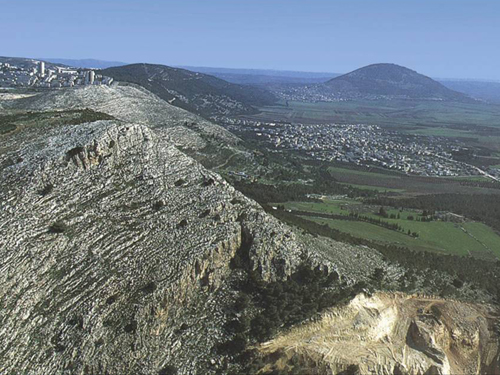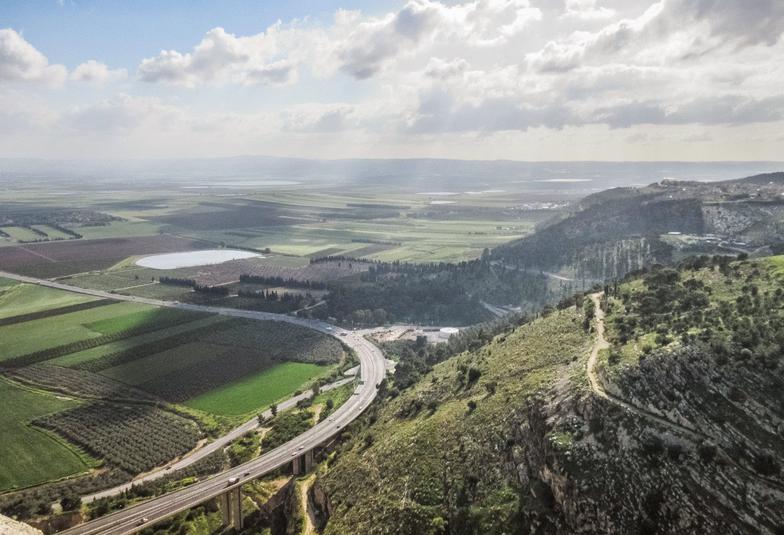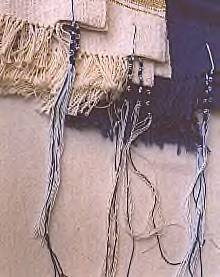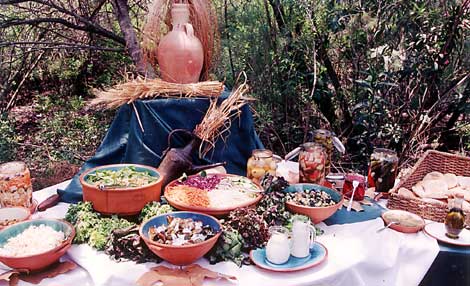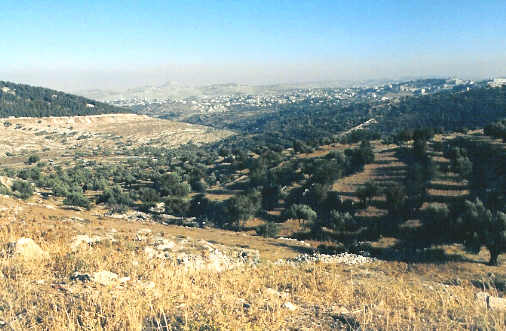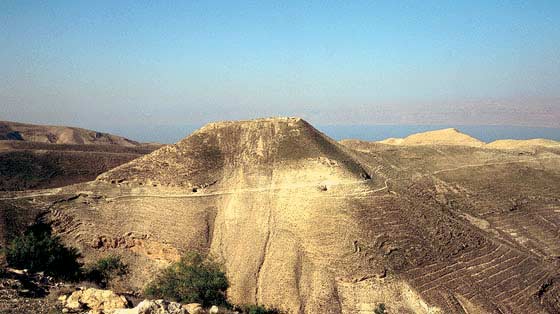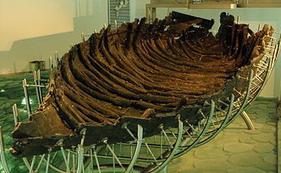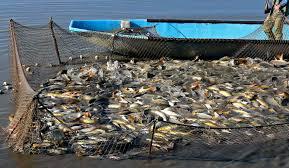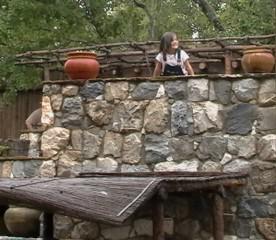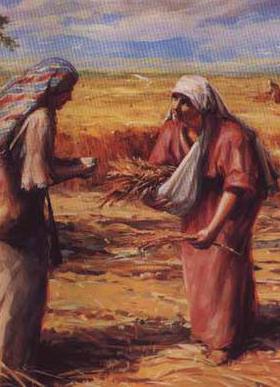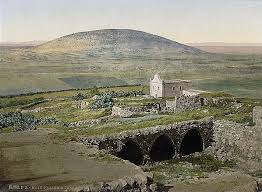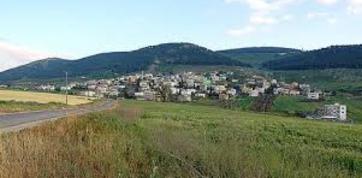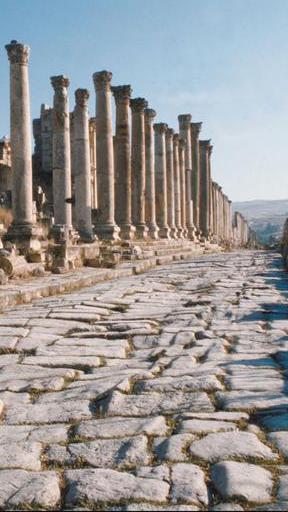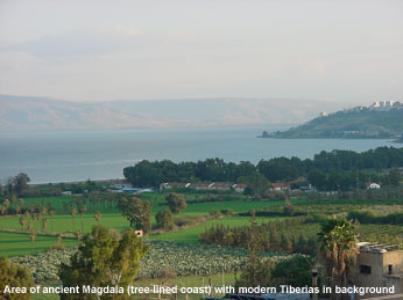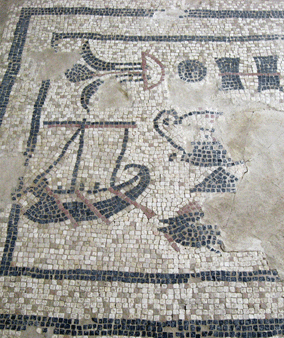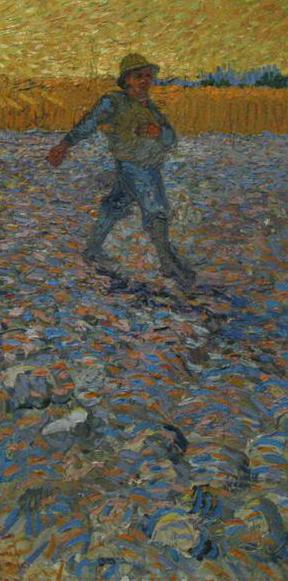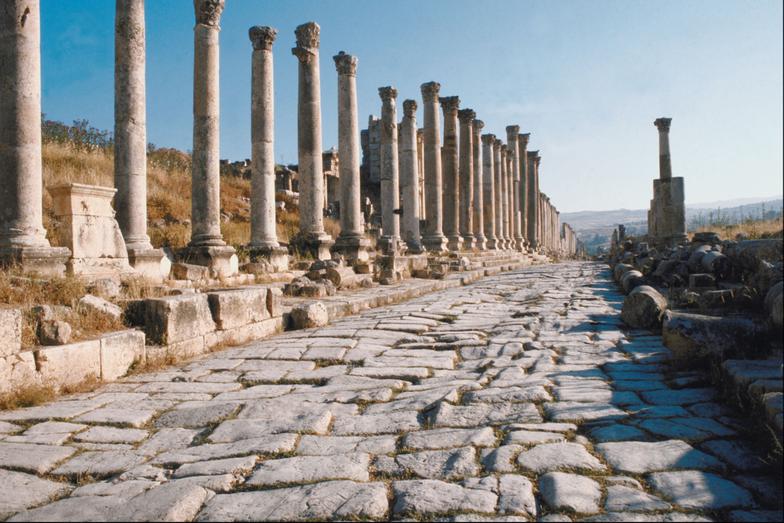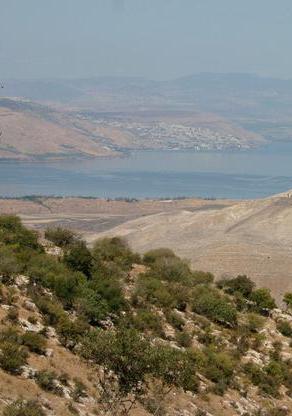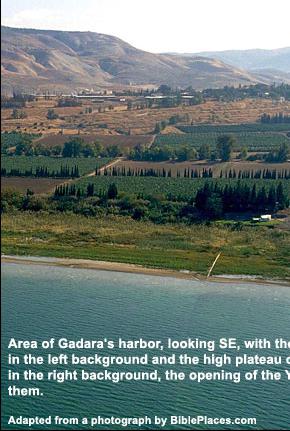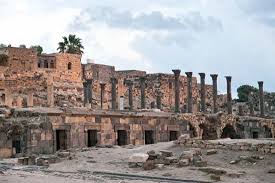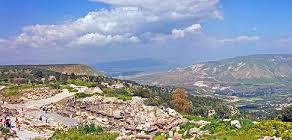CHAPTER 1
1. Seeing that many have taken in hand to compose an orderly narrative of the things that have been carried through to fulfillment among us,
2. considering the fact that those who from the beginning were given to be eyewitnesses and servants assisting the Word committed them to us,
3. it seemed appropriate to me likewise, having followed all [these] things accurately since the beginning, to write them to you in succession, O most illustrious lover of YHWH,
Lover of YHWH: or more particularly, a proper name, Theophilus. James Trimm writes, “Theophilus… served as High Priest from 37 to 42 C.E. Theophilus was both a priest and a Sadducee. It would appear that the Gospel was intended to be used by others as well and was likely targeted at Sadducee [Tzaduqim] readers. Theophilus was the son of Annas and the brother-in-law of Caiaphas; as a result he grew up in the Temple. This explains many features of Luke. Luke begins the story with an account of Zechariah the righteous priest who had a vision of an angel at the Temple (1:5-25) he quickly moves on to an account of Miriam's purification and Yeshua's redemption rituals at the Temple (2:21-39) and then to the event of Yeshua teaching at the Temple at the age of twelve (2:46). Luke makes no mention of Caiaphas' role in Yeshua's crucifixion and emphasizes Yeshua's literal resurrection (24:39) (Sadducees did not believe in the resurrection of the dead). Both Luke and Acts are addressed to Theophilus ben Annas who served as High Priest from 37-41 C.E. Josephus records that in 37 C.E. Herod removed Jonathan from the High Priesthood and replaced him with his brother Theophilus (Josephus; Antiquities 18:5:3), then in 41 C.E. Herod removed Theophilus from office and replaced him with Simon ben Boethus who had given Herod a daughter to wed.”
4. so that you might become thoroughly acquainted with how solid the [truthfulness is of the] teachings in which you have been instructed orally.
5. In the days of Herodus the king of Judea, there was a certain priest named Z’kharyah, who belonged to Aviyah's course of duty. And his wife was from the daughters of Aharon, and her name was Elisheva.
Elisheva: Gk., "Elisabeth", also the LXX transliteration of Elisheva in Ex. 6:23. It means "Elohim made an oath". Her husband's name (Zekharyah) means "YHWH remembers". Put together, their offspring is a beautiful picture of Elohim's faithfulness to His promise. Course of duty: The "rotation or class of the priests' service at the Temple, as distributed by families" (Strong), according to the 24 divisions that David had set up (1 Chron. 24:4ff; 2 Chron. 8:14). Each division discharged its duties for a whole week, and the courses ran twice a year. Aviyah's position was eighth (1 Chron. 24:10), but his descendants served on the tenth week of the first cycle since all of the divisions served on the third week (Feast of Unleavened Bread) and the ninth (Shavuoth). (J. Good; Mishnah Order Moed, Tractate Rosh haShanah)
6. And they were both righteous in the sight of Elohim, adhering blamelessly to all the commandments and right-rulings of YHWH.
7. Yet they did not have [any] offspring, because Elisheva was sterile, and they were both far along in days.
8. But it came about that while he was performing his priestly functions before Elohim in the order of his division,
9. according to the prescribed custom of the priestly office, his lot was to burn incense when he went into the Temple of YHWH,
10. and the whole multitude of the people were praying outside at the hour of incense.
11. Now a messenger of YHWH appeared to him, standing on the right side of the altar of incense.
12. And when he saw him, Z’kharyah was troubled, and fear pressed in on him.
Trimm writes, “One might expect him to be overjoyed to see an angel in the Temple… Pharisees and Sadducees differed as to how they believed the incense offering was to be made. Sadducees controlled the priesthood and the Temple (because most priests were Sadducees) but Pharisees were the majority and thus controlled the people and the courts. According to the Mishnah (m. Yoma 1:5), the Pharisees would use the power of the Rabbinical courts to require the priests to agree to perform the Temple services according to the traditional method handed down by the elders and not to alter it based on Sadducee understandings and interpretations by bringing the incense into the Holy of Holies… because a Sadducee Priest had once taken it upon himself to alter the service, and… ‘an angel had come and struck him down on his face [to the ground] and his brethren the priests came in and they found the trace as of a calf's foot on his shoulder, as it is written: And their feet were straight feet, and the sole of their feet was like the sole of a calf's foot.’ (b.Yoma 19b) In light of this passage it is clear why Z'kharyah was troubled and fearful when the angel appeared to him in the Temple after he had offered incense. Z'kharyah was almost certainly aware of this story and thus must have been worried that he had somehow offered the incense incorrectly and that the angel had appeared in order to strike him down.”
13. But the angel said to him, "Do not be afraid, Z’kharyah, because your prayer has been heard, and your wife Elisheva will bear you a son, and you shall call his name Yochanan.
Yochanan: Short form of Y’hochanan, which means "YHWH has shown favor". Allowing for Elisheva's two weeks of purification, the normal gestation period would bring us to Passover. Interestingly, this is the time when Jewish people to this day expect the Eliyahu of promise (Mal. 4:5) to appear, and Yeshua said that Yochanan fulfilled this role at least partially (Mat. 11:10; cf. v. 17 here). Your prayer: The specific prayer he would have been praying asks for Eliyahu to return, bringing the Messiah, Son of David. (Compare v. 17.)
14. "And to you he will be the occasion of joy and extreme gladness, and many will rejoice over his birth,
15. “because he will be eminent in the sight of YHWH, but by no means may he drink wine or an intoxicating beverage, but he will be filled with the Spirit of Holiness all the way from his mother’s womb.
16. "And he will turn many of the sons of Israel back toward YHWH their Elohim.
Sons of Israel: The full impact of the meaning is missed if we equate “Israel” here with the Jews as so many do. On the contrary, after King Shlomo, during the divided Kingdom and beyond, “Israel” is contrasted with Yehudah until the two are again rejoined, which is only beginning to occur in our day. Thus his readers would think “the dispersed Northern Kingdom” when they saw “Israel”.
17. "That is, he will precede Him in the spirit and power of Eliyahu, ‘to return the hearts of fathers to [their] children’, even noncompliant ones with the wisdom of the righteous, to get ready a people who have become prepared for YHWH.
A people: a unified nation.
18. But Z’kharyah said to the angel, “By what can I be sure of this? I, for one, am an old man, and my wife is advanced in her days!”
19. So in reply the angel said to him, “I am Gavriel, the one who stands in the presence of the Elohim! And I was sent to speak to you, to bring you this glad news!
Gavriel: Previously known from Dani’el 8:16; 9:21.
20. “So here it is: You will be kept silent and unable to speak until that day when these things take place, in return for your not believing my words, which will be fulfilled in their season."
21. While the people were waiting for Z’kharyah, they were astonished at his taking so long in the Temple.
22. Then when he did come out, he was unable to speak to them, and they realized that he had seen a vision in the Temple. And he was gesturing to them, and remained mute.
23. So what transpired was that, when the days of his [priestly] service were complete, he left for his home.
24. And after these days, his wife Elisheva became pregnant, and she concealed herself for five months, saying
Elisheva: named after their ancestor Aharon's wife. (Ex. 6:23)
25. that “this is what YHWH has done for me in the days when He showed regard for me, to take away my disgrace among human beings!”
Disgrace: only because those who were childless were considered (by these human beings, but not necessarily by YHWH) to be out of favor with YHWH.
26. Now in the sixth month the messenger Gavriel was sent by Elohim into a city of the Galil named Natzereth
Gavriel ("Elohim is my mighty warrior"): a messenger who had brought Daniel the interpretation of a vision. (Dan. 8:16; 9:21) This would bring them to the time of Hanukkah (See note on verse 35), or more probably the day before, because there is a definite prophecy that from the day the foundation of the Temple was laid (the 24th of the 9th month) onward, YHWH would bring blessing (Haggai 2:18ff), since Yeshua spoke of his body (apparently conceived the same day of the year) as a temple. (Yochanan 2:19-21) and spoke of himself as the “light of the world” (Yoch. 8:12)—a prominent theme of Hanukkah, a festival added later than the Torah but which he attended at least once, apparently validating it since it celebrated keeping the Hebrew faith alive in the face of a dire threat of assimilation. (Yoch. 10) Nine months or 40 weeks would bring her to the festival of Sukkoth (note on 2:7). Natzereth is on the northern escarpment bordering the Yizre’el Valley near Mt. Tavor.
27. to a virgin who had been betrothed to a man named Yosef; now the virgin's name was Miryam.
Miryam means "rebel". Not that she herself was a rebel, but her name correlates with the promise that the “seed of the woman” who was responsible for mankind's fall would provide the very solution (Gen. 3:15), highlighted here as Miryam conceives without the aid of a man. (A woman normally has no seed except as given by her husband.) This redemption is pictured in the Jewish liturgy as a woman is always the one to light the candles of the Sabbath, which pictures the light being restored to mankind through the seed of the rebellious woman. Betrothed: see Mat. 1:18.
28. And the messenger approached her and said, “Salutations, [you who are] honored with favor! YHWH is with you! You are praised among women!”
Favor: being chosen among all the women of David’s lineage to be the mother of the Messiah. Praised among women: This echoes Proverbs 31, which ends with “the woman who fears YHWH is the one who will be praised.”
29. But when she saw him, she was greatly distressed at what he said, and was puzzled, wondering what kind of greeting this might be.
30. And the messenger said to her, “Don’t be afraid, Miryam, because you have found favor with Elohim.
31. “Indeed, you will even conceive in your womb and give birth to a son, whose name you must call Yeshua.
32. “He will be eminent, and will be called the Son of Elyon, and the Elohim YHWH shall grant him the throne of his ancestor David,
There is a fascinating parallel in Dead Sea Scroll, considered to have been written some about 200 years before this: "He shall be called the son of Elohim, and they shall designate [call] him son of the Most High (Elyon). Like the appearance of comets, so shall be their kingdom. For brief years they shall reign over the earth and shall trample on all; one people shall trample on another and one province on another until the people of Elohim shall rise and all shall rest from the sword."
33. “and he will reign over the House of Yaaqov into perpetuity, and of his kingdom there will be no end.”
34. But Miryam said to the messenger, “How can this come about, since since I am not knowing a male?”
This shows that, from her standpoint, Yosef cannot be the physical father.
35. In response, the messenger addressed her, telling her, "The spirit of being set apart shall come upon you, and the power of the Most High shall overshadow you. Consequently, then, the holy one who will be brought forth from you will be called the Son of Elohim.
In ancient times the prayers used at Sukkoth were also prayed at Hanukkah, since both festivals had eight days and only the former was actually prescribed by YHWH. (Maccabees) Sukkoth, like Hanukkah (Yoch. 10:22) was also called the Feast of Dedication, since King Shlomo dedicated the first Temple at that time. (2 Chron. 7:8, 9) The prayer prayed in the sukkah on the first night of the feast begins, "May it be Thy will, O YHWH my Elohim...to let Thy divine presence abide among us. Spread over us the canopy of Thy peace...O surround us with the pure and holy radiance of Thy glory that is spread over our heads..." (See also note on. v. 38.) It continues, "Make me worthy to dwell trustingly in the covert of Thy shadowing wings..." Son of Elohim: A title for the Messiah (2 Shmu’el 7:14; 1 Chron. 17:13; 22:10); here he explains how and why.
36. “And indeed, your relative Elisheva has also conceived a son in her old age, and this is the sixth month for her who was called sterile!
37. “Because with Elohim, nothing is impossible.”
38. And Miryam said, "Behold, the handmaid of YHWH! May it take place for me in agreement with your word." And the messenger departed from her.
She echoes Aviga’il, who spoke thus to David. (1 Shmu’el 25:41)
39. So Miryam got up in those days and traveled in a hurry into the mountainous region, to a town of Yehudah
By tradition the town was Eyn Karem, a few miles southwest of Yerushalayim.
40. and entered into the house of Z’kharyah, and greeted Elisheva.
Greeted: or saluted, paid respects to, thus probably including congratulations on her late-in-life pregnancy.
41. Then what took place is that, as soon as Elisheva heard Miryam’s greeting, the baby in her womb jumped, and Elisheva was filled with the spirit of holiness,
42. and she called out with a loud voice and said, “Blessed are you among women, and blessed is the fruit of your womb!
Called out: or exclaimed.
43. “And how do I deserve this—that the mother of my Master should come to me?
How do I deserve: literally, from whence to me?
44. “Because look! As soon as the sound of your greeting came into my ears, the baby in my womb jumped for joy!
Joy: the word connotes an intense gladness.
45. “And blessed is the one who trusted, because there will be a fulfillment to the things spoken to her from beside YHWH.”
This constituted the second witness to what the angel had told her, for in Israel, a thing is not established, even if spoken by a supernatural messenger, until the second, in this case a prophetess, confirms it.
46. Then Miryam said, “My soul magnifies YHWH,
Magnifies: or holds in high esteem.
47. “and my spirit is full of joy over Elohim my Savior,
Full of joy: to the point of boasting.
48. “because He has looked with favor on the humble position of His maidservant. Indeed, look! From now on, all the generations will count me blessed,
49. “because the Powerful One has done great things for me; His reputation is unique,
Powerful…unique: There have been recorded cases of parthenogenesis, but the offspring have always been female; only YHWH could bring about a male child from a virgin. The first phrase here is reminiscent of Psalm 126:3.
50. “and His compassion [extends] into generation upon generation for those who have reverence for Him.
Reverence: or even fear; she had not gotten pregnant by “fooling around” with anyone, “cheating” on her fiancé, but had been obedient to His commandments, as Exodus 20:5-6, from which this statement is derived, stipulates .
51. “He has accomplished dominion with His arm, and scattered the arrogant in the reasonings of their hearts!
Yeshayahu 53, which speaks of how unbelievable the Messiah’s accomplishments would seem, starts out by asking “to whom has the arm of YHWH been revealed?”
52. “He has brought potentates down from thrones, and lifted up the humble!
Potentates: while one day the Messiah may unseat kings to set up his kingdom, through him YHWH also deposed “principalities and powers, the rulers of the darkness of this age” (Efesians 6:12), stripping them of the spoils they had gotten when they defeated the first Adam (Kolossians 2:15) and returning them to this human ruler, the king in the line of David. Humble: those who accept YHWH’s will for themselves, even when difficult, as this must have been for her, because they have confidence that YHWH knows best.(Compare 1 Kefa 5:6.)
53. “He has filled the hungry with good things, but the rich He has sent away empty.
54. “He has supported Israel, His child [in training], remembering [to have] compassion,
Supported: through taking hold of their burden from the opposite side, so as to help someone lift something. Child: or “boy”, often connoting “servant”.
55. “as He promised our ancestors—Avraham and his descendants into the Age!”
Into the Age: that is, the “age to come”--either all the way through and including the Messianic Kingdom, or even further, for eternity.
56. So Miryam stayed with her about three months, then returned home.
It might appear to those back home that she had been unfaithful to Yosef while on this trip, because after three months she would be beginning to “show”.
57. On the other hand, the time was completed for Elisheva to give birth, and she bore a son.
58. When her neighbors and relatives heard that she was magnifying YHWH for His compassion with her, they celebrated together with her.
Celebrated: the Greek term includes both rejoicing and congratulating.
59. Then what occurred on the eighth day, when they came to circumcise the infant, they were about to call him after the name of his father, Z’kharyah,
Notice their strict Torah observance.
60. but his other responded and said, “By no means! Rather, he will be called Yochanan.”
Yochanan: see note on verse 13.
61. And they said to her, “There is no one among your relatives who is called by that name!”
62. So they signaled to his father as to what he might, in that case, want him to be named.
It is interesting that he is the one who was mute, yet those speaking to him also communicated via “sign language” as if he were also deaf!
63. And after he asked for a writing tablet, he wrote, saying, “Yochanan is his name.” And they were all surprised.
64. In addition, his mouth was instantly opened, and his tongue [loosed], and he started to speak, blessing Elohim.
65. And a great sense of awe came upon all those who lived around them, and all these things were being talked about all throughout the mountainous country of Judea.
Awe: or fear, from a root word meaning “to withdraw”.
66. And all those who heard them kept them in mind, saying, “Under these circumstances, what is this child going to be?” And indeed, the hand of YHWH was with him.
Kept them in mind: literally, laid them up in their hearts.
67. His father, Z’kharyah, was also filled with the spirit of holiness, and prophesied, saying,
68. “Blessed be YHWH, the Elohim of Israel, because He has visited and brought His people redemption,”
Visited: a Hebrew idiom for looking upon with favor and provide needed help.
69. “and has raised up a horn of preservation for us in the House of David, His servant,
Servant: here, the word for “boy” as used Hebraically in the sense of a young servant rather than a son as such, though that was also a title carried by the kings in David’s line.
70. “just as He said [He would] through the mouth of His holy prophets of old--
71. “deliverance from our enemies and from the hand of all those who hate us--
The enemies most had in mind in terms of redemption (v. 68) at that time was obviously the Romans, in whose hands they were indeed captive. But there were deeper enemies YHWH was addressing, of which the Roman occupation was only a symptom.
72. “to exercise mercy with our ancestors and to remember His holy covenant--
73. “the oath that He swore to our ancestor Avraham, to grant to us
74. “that, having been rescued out of the hand of our enemies, we might worship Him without fear,
75. “in piety and righteousness before Him all of our days!
Piety: applying what YHWH has sanctioned and defined as holy.
76. “And you, moreover, O child, will be called a prophet of the Most High. Indeed, you will go on ahead of the Master, to make his paths ready,
Compare Mal’akhi 3:1.
77. “to let His people know deliverance—the sending away of their sins
This is a much more ultimate deliverance than simply freedom to govern themselves, for sin can still enslave people from within even when no one is enslaving them from outside. Sending away: an allusion to the scapegoat on Yom Kippur. While sin had to be covered for because we cannot do away with the genetic proclivity toward it, individual sins can be completely forgiven now that the events that were being initiated here have been carried through to completion. (Custance)
78. “through the visceral compassions of our Elohim, who will provide for us a sunrise from on high
79. “to shine upon those who are sitting in darkness and in the shadow of death, to guide our feet [directly] into the path of peace.”
This is a reference to the prophecies in Psalm 107:10 and Yeshayahu 9:2.
80. And the child grew and was strengthened in spirit, and was in the desert until the day of his [public] appearance to Israel.
Strengthened: so that he was confirmed, attained mastery, and prevailed. Desert: possibly to have the solitude to seek YHWH undisturbed regarding his calling, but possibly also living, as tradition says he did, in the Qumran community, where many who had rejected the corrupt Temple establishment of the day had settled and formed their own center for worship, purification, training for a battle against the forces of darkness, and preservation of sacred writings.
CHAPTER 2
1. Now what occurred in those days was that a decree went out from Caesar Augustus that the whole [inhabited] world should be enrolled [in a register of records].
This was a listing of all the people under Rome's authority, especially those who had sworn an oath of allegiance, not for taxation purposes but to be presented to Caesar on the 25th anniversary of his rise to power. (Ben Mordechai)
2. (This registration was first done when Quirinius was governor of [the province of] Syria.)
Syria at that time included “Palestina” and possibly Judea also. Quirinius: P. Sulpicius Quirinus, also known as Cyrenius. Sir Robert Anderson (The Coming Prince, chapter 8), said, “In writing to the Jews, [second-century apologist] Justin Martyr [appealed] to the lists of that census as to documents then extant and available for reference, to prove that though Joseph and Mary lived at Nazareth, they went up to Bethlehem to be enrolled… Not many years ago …the evangelist's mention of Cyrenius appeared to be a hopeless anachronism; as, according to undoubted history, the period of his governorship and the date of his "taxing" were nine or ten years later than the nativity… But by a series of separate investigations and arguments, all of them independent of Scripture, Dr. Zumpt has established that Quirinus was twice governor of the province, and that his first term of office dated from the latter part of B.C. 4, when he succeeded Quinctilius Varus… The introduction of this new element into the consideration of the question, enables us with absolute confidence, adopting [Fynes] Clinton's dictum, to assign the death of Herod to the month Adar of B.C. 3, and the nativity to the autumn of B.C. 4.” (Sukkoth is indeed in the autumn, but Saturnalia is not.) During his first term of office, he was governor of a different type, having special duties in regard to this registration, under another governor, Saturninus, whose position Quirinius would later hold. (Josephus, Antiquities, 16 and 18; Martin)
3. So everyone went to be registered, each to his own [home]town.
Hometown: birthplace or ancestral home.
4. Yosef also went up from Galil, out of the city of Natzereth, into Judea, to David’s hometown, which is called Beyth Lekhem (because he was from the house and lineage of David)
Natzereth: on the very edge of the Galil region, on the northern rim of the Valley of Yezre’el, at that time a small suburb of the large city and administrative center of Tzippori (Sepphoris). House of David: a particular description used of the royal line of kings that succeeded David, their ancestor.
5. to be registered, along with Miryam, his betrothed wife, who was [highly] pregnant.
6. And so it was that while they were there, the days came to full term for her to deliver,
7. and she gave birth to her son, the Firstborn, and wrapped him in strips of cloth and lay him in a feeding-trough, because there was no room for them in the inn.
Firstborn: this is the word order in Greek, hinting at the deeper meaning that he was not just her firstborn, but that this was a title alluded to in Psalm 89:28 (27 in English), based on which Rabbi Nathan said the Messiah would be called YHWH’s Firstborn. (Midrash Rabbah on Shemoth 19:7). Strips of cloth: literally the old and discarded garments of the Temple priests typically used for making wicks to light the Temple menorah (Ben Mordechai) or the four great lights in the Temple courts during Sukkoth (Joseph Good). No room: The registration (vv. 1-2) would be implemented only over a period of several months due to the difficulties of travel and to allow all the citizens to harvest their crops before being required to travel; thus Beyth Lekhem would not have been overcrowded for that reason alone. As a suburb of Yerushalayim, however, it would overflow with people during the three pilgrim festivals, of which Sukkoth was one. Yosef, needing to go to Yerushalayim for the festival, would probably have saved an extra trip by reporting for the census in nearby Beyth Lekhem at the same time. (Good)
8. Now in the same region there were shepherds staying out in the fields and keeping guard over their flocks by night,
Micha 4:8 identifies the place where "it would take place" as Migdal Eder, the "Tower of the Flock", toward Rachel's tomb (Gen. 35:16), between Beyth-Lekhem and Yerushalayim. The Mishnah identifies this tower as the outermost boundary of a circle encompassing Yerushalayim within which all lambs offered in the Temple by the Levitical priests themselves had to be born. Thus Y’shua, to qualify as Messiah, the “Lamb of Elohim” (Yocanan 1:29), who would be the fulfillment of Passover (1 Kor. 5:7), could not have been born in Natzereth. Thus it becomes clear why the angels first announced His birth to these shepherds in particular. They were the ones raising the Passover lambs, and thus were the first to know that the fulfillment of the picture they were living out for their whole lives was soon to be fulfilled! The flocks were brought out after the spring rains and kept there until the late fall, when the weather would become bitterly cold and the latter rains would begin. Thus this could not have taken place in late December. (Ben-David) Copious other evidence points to Y’shua's birth being during the feast of Sukkoth, which falls in early autumn. (See notes on v. 7, 10, 12) The prayer welcoming the Sabbath (a complementary picture of the Kingdom along with Sukkoth) ties its light and the resurrection of its inhabitants to the "hour of the Beyth-Lechemite's birth". (L'cha Dodi)
9. when suddenly, a messenger of YHWH appeared to them, and the splendor of YHWH shone all around them, and they were seized with great dread.
10. But the messenger told them, "Don't be afraid, because, behold! I am announcing to you glad news, a great joy, which shall be for all the people—
Great joy: The festivals of Passover, Shavuoth, and Sukkoth are called the "joyful festivals" as opposed to the solemn ones, but Sukkoth is called the "Season of Our Joy", marking it as the time of supreme joy. The ninth day of the festival is called the day of "Joy in the Torah", a time of great festivity and dancing, but in the days when the Temple still stood it was celebrated on the eighth day. Yeshua is the "Torah made flesh", and His flesh was circumcised on the eighth day. All the people: Sukkoth is also called the "Festival of the Nations" since a total of 70 animals are sacrificed throughout its eight days. Jewish sages have regarded this as a petition for the redemption of all nations since Deut. 32:8 links the number of the sons of Yaaqov (70 in Ex. 1:1-5) with the boundaries and inheritance of the nations.
11. "because today a Deliverer, who is YHWH's anointed, was born for you in David's hometown!
12. "And this is a sign for you: you will find an infant swathed in strips of cloth, lying in a fodder-crib for animals."
Strips of cloth: This was a common custom for infants. The only time it would be a sign is at Sukkoth, when the used garments of the priests were torn into strips and soaked in oil to act as wicks for the four great lights in the Temple (only at Sukkoth), which constituted what was known as "the Light of the World". On a later Sukkoth, Y’shua said that this title represented Himself. (Yoch. 8:12) Fodder-crib: The animals would undoubtedly be sheltered in a stable like the ones Yaaqov built for his flocks, which in Hebrew are called sukkoth (Gen. 33:17), another indication of the correlation with this festival by the same name.
13. And suddenly, there emerged with the messenger a great crowd of the armies of heaven, praising Elohim and saying,
14. “Honor in the highest [degree] to Elohim, and on earth, peace to human beings with whom He is pleased!”
Or, honor to Elohim in the highest [place].
15. So what occurred was that, as the messengers were departing from them into the heavenly realm, the shepherds said to one another, “We really should go all the way over to Beyth Lekhem and see this thing that has come about, which YHWH has let us know about!”
Thing that has come about: literally, word that has come true or come into manifestation (emerging from the realm of mere idea and showing up as part of the visible, physical reality).
16. So they hurried and went, and found both Miryam and Yosef, as well as the baby lying in a feeding-trough.
17. Then, having seen, they spread the knowledge about the message they had been told concerning this child.
18. And all those who heard [it] were amazed at the things the shepherds had told them.
19. But Miryam treasured up all these matters, pondering them in her heart,
Treasured up: or kept them safe, kept them in mind. Pondering: deliberating, considering, trying to bring all of them together into one picture. This is just like Yaaqov’s response to Yosef’s dreams. (Gen. 37:11)
20. and the shepherds returned, honoring and praising Elohim on account of all the things they had heard and seen, [which turned out to be] just as had been told to them.
21. And when the eight days marking the appointed time to circumcise the child had been concluded, He was given the name Yeshua, as prescribed by the angel prior to the time He was conceived in His mother's womb.
The eighth day in Scripture always symbolizes making something permanent after a complete cycle of seven. The eighth day of Sukkoth is called "the eighth conclusion", encore, or affectionate farewell. Yeshua was thus saying “farewell” to his fleshly life and fully taking his place as a son of Israel.
22. When the days of their purification were fulfilled according to the Torah of Moshe, they brought him into Yerushalayim to present [him] to YHWH
Fulfilled: the pertinent commands are in Leviticus 12.
23. (as it is written in YHWH’s Torah that every male who opens up the womb is set apart to YHWH),
Opens up: the term means “to fully open all the way across”, implying completing the process necessary to prepare it for a birth. Yeshua was set apart in an especially-unique way already, but the ceremonial presentation completed the proof that his parents cared about raising him within the context of all of YHWH’s commandments. This is not a direct quote, but a synopsis of Exodus 13:2 and 34:19.
24. and to give an offering, according to what has been commanded in the Torah of YHWH, “a pair of turtledoves or two nestling pigeons”
This indicates that, at this point in their lives, despite being in the royal line of David, they were too poor to afford a lamb. (Lev. 12:8) Considering that those who were in power illegitimately sought to destroy the rightful heirs to the throne, it was probably better that they were “under the radar” most of the time with no ostentatious display of even a small amount of wealth.
25. Now, lo and behold, there was a person in Yerushalayim whose name was Shim’on, and this “mensch” was righteous and devout, waiting expectantly for the Consolation of Israel, and the spirit upon him was different.
Mensch: in the German from which the term is derived, it simply means “ a person”, but in Yiddish it has the specialized meaning of being a good person; likewise the Greek word here simply means “human being”, but the rest of the context shows that the specialized meaning is well-deserved. Different: or distinctive, the same word rendered “set apart” in v. 23 and often used in the specialized spiritual sense of “holy”.
26. And it had been [divinely] revealed to him by the Holy Spirit [that he would] by no means see death before he would see YHWH’s Messiah.
Revealed: or granted.
27. Now, [operating] in the Spirit, he came into the Temple at the time the child Yeshua’s parents were bringing him [to introduce him and] to do for him according to what was customary by the Torah,
28. and he welcomed him into his arms [which were bent for carrying], and he blessed Elohim and said,
29. “Now you can dismiss Your servant in peace, according to what You said,
Dismiss: or release, allow to depart.
30. “because my eyes have seen Your deliverance,
Deliverance: particularly the means one uses to bring salvation; Yeshua’s very name means “YHWH delivers”—a shortened form of the name Moshe changed Hoshea’s name to emphasize not mere deliverance but the One who is responsible for it. This therefore puts the focus of attention on YHWH more than on Yeshua, as he always wanted. (Yoch. 4:34; 5:30, et al)
31. “which You have made ready before the eyes of all of the peoples:
32. “a light [shining] in [for the] revelation of the tribes, and [the] glory of your people Israel!”
Revelation: or unveiling. The tribes: or possibly, the nations (properly ethnic groups), but the emphasis is on what is being revealed, not who it is being revealed to, and one of Messiah’s chief tasks, if not the paramount, is to “raise up the tribes of Yaaqov, and to restore those of Israel who have been preserved”; because he did such a good job of this, he was given the bonus reward of being allowed to be also a light to the Gentiles because he deserved even more than he had been promised. (Yeshayahu 49:6) Glory: or weightiness deserving of honor.
33. And his father and mother were astonished at the things that were being spoken about him.
34. And Shim’on blessed them, and told his mother Miryam, “Behold, this one is specially appointed for the falling and rising of many in Israel and to be a sign to be opposed.
Falling: or ruin. Sign: distinguishing mark to authenticate the purpose of the One giving it. Opposed: literally, spoken against; i.e., contradicted in a hostile, argumentative way; disputed in order to thwart. Indeed, Yeshua has been a point of contention especially between rabbinically-oriented Jews and those of both Yehudah and the other tribes who do see him as significant, but not so much because of his actual claims as because of what Gentiles added to his claims in order to make them palatable to a whole empire and more suited to a non-Hebraic mindset.
35. “A sword will even pass through your own soul as well, in order that the deliberations [within] many hearts may be brought to light.”
This may refer to how Miryam herself would be worshipped by some pagans who saw parallels between her and her son and Semiramis and Tammuz, as well as the devastating experience of watching her own son crucified..
36. Channah, a prophetess, the daughter of Fanuel from the tribe of Asher, was also there. She was greatly advanced in days, having after her virginity lived with a husband seven years,
37. then she was a widow until 84 years, who did not withdraw from the Temple, rendering qualified service with fasting and heartfelt petitions night and day.
38. And since she had been on hand at that hour, she gave formal praise to Elohim, and spoke concerning him to all those who were waiting expectantly for the liberation of Yerushalayim.
Been on hand: or, come up. YHWH honored the faithful service of these righteous elders by allowing them to not only be in the right place at the right time but also to contribute encouragement to his parents. Concerning him: apparently Yeshua rather than YHWH. Liberation: or redemption--from the Romans so that they could freely worship according to Torah, rather than being at the mercy of the occupiers as to whether the high priest could wear his garments even at festivals depending on their “good behavior” by Roman definition.
39. When they had completed all the [requirements] according to the Torah of YHWH, they went back into the Galil, to their [home]town of Natzereth
40. and the child grew and attained mastery, being filled with wisdom, and the empowering favor of Elohim was upon him.
41. Now his parents traveled every year into Yerushalayim at the feast of the Passover.
42. And when he had become twelve years old, they had gone up to the feast as usual,
Was this his bar mitzvah? Gone up: both in a physical and spiritual sense, it is always an ascent when going to Yerushalayim. As usual: or, according to the habit, unwritten custom, or social tradition.
43. and when the days were completed and they were returning, the boy Yeshua stayed behind in Yerushalayim without his parents’ knowledge.
44. In addition, assuming him to be in their caravan, they went a day’s journey, then searched up and down for him among their relatives and acquaintances.
45. And, not finding him, they went back to Yerushayalim, looking frantically for him.
46. And it turned out that after three days, they found him in the Temple, sitting amid the teachers, both listening to them and asking them pointed questions.
47. Moreover, all those who heard him were overwhelmed [and at a loss to explain] his comprehension and his answers.
Comprehension: putting together and synthesizing implicit or indirect truths in his mind, resulting in a holistic understanding. Even at his age, having not “come unplugged” from our power Source like the rest of those born of Adam, he was much more perceptive as well as intelligent, and understood the connections between spiritual concepts in the Torah much better than these aged men who had been studying them their whole lives.
48. When they saw him, they were astounded, and his mother said to him, “Child, why have you done this to us? Look! Your father and I were consumed [with distress in] searching for you!”
49. And he said to them, “Why were you looking for me? Didn’t you know that I have to be about my Father’s affairs?”
50. And they did not understand the thing that he said to them,
51. but he went with them and arrived in Natzereth, and was being subordinate to them.
Subordinate: subject of obedient. Though he had far greater spiritual insight than either of them, having laid aside only his spiritual soul (Phil. 2:5-11), but not the other aspects of the image of Elohim that gave him a far better connection to the Father, still, “to fulfill all righteousness”, this quintessential Israelite, as archetype and prototype for the race he would restore as the second Adam, took his proper place in the order of his family as long as he was under their authority, and was rewarded for it:
52. And Yeshua kept increasing in wisdom and stature, and in favor with Elohim and men.
Increasing: or progressing. Stature: physical growth, but Midrash Rabbah on Genesis and the Tzohar both teach that Adam was decimated in stature when he was separated from Elohim in the Garden and brought to judgment. The image of Elohim, lost when Adam fell, now reappeared at the proper time. “Yeshua, as the second Adam, with his feet in the Malchut (the earth) and his head in keter (the heavens), began the process of tikkun (repair) that the first Adam left behind in shambles. Yeshua…reconnected earthly Man with the original Man, or, if you will, Adam below with Adam above (Elohim). In performing the job, Yeshua’s stature (as the second Adam) grew to the spiritual dimension that was enjoyed by the first Adam before he sinned.” (Ben Mordechai) Favor with Elohim and men: A traditional Jewish morning prayer for children, based on Proverbs 1:8, says, “Listen, my child, to the discipline of your father, and do not abandon the teaching of your mother, for then you will find favor and good reputation in the eyes of Elohim and men.”
CHAPTER 3
1. In the fifteenth year of the reign of Tiberius Caesar, Pontius Pilatus being governor of Judaea, and Herodus being tetrarch of Galil, and his brother Philip tetrarch of Ituraea and of the region of Trachonitis, and Lysanias the tetrarch of Abilene,
Sir Robert Anderson wrote, “the date of Tiberius Caesar's reign is known with absolute accuracy; and his fifteenth year, reckoned from his accession, began on the 19th August, A.D. 28. And further, it is also known that during that year, so reckoned, each of the personages named in the passage, actually held the position there assigned to him.” (The Coming Prince.)
2. Annas and Kayafa being high priests, the word of Elohim came to Yochanan the son of Z’kharyah in the wilderness.
Trimm writes: “Although there was only one High Priest at a time, and the office was supposed to be for life, this was not the case at this time. There was only one High Priest at a time but he was appointed by Rome and replaced at the will of Herod. Thus Annas was an ex-High Priest and Caiaphas [Kayafa] was the current High Priest. Luke mentions these by name because they are Theophilus' father and brother-in-law. Moreover Luke dates these events based on who was High Priest because Theophilus himself was a High Priest.”
3. And he went into all the region around the Yarden [River], heralding an immersion into the forgiveness of sins,
Into: or for the purpose of, since there were other types of immersion, such as for conversion to Judaism, for purification after a time of ritual uncleanness, and for entry into the Temple complex. Forgiveness: literally, sending away—i.e., not a covering alone as had been necessary previously, but, like the other goat at Yom Kippur, actually taking it away.
4. as it had been written in the book of Yeshayahu the prophet’s words, “the voice of one calling out urgently in the wilderness, ‘Prepare YHWH’s road, and make His paths level.
Make…level: the original Hebrew (of Yeshayahu 40:3) says, “Make a level highway in the Aravah for our Elohim.” The Aravah is exactly the part of the wilderness—not a desert in that section—where Yochanan was. The Aravah is the Great Rift Valley through which the Yarden flows.
5. “‘Every gully will be filled in, and every mountain and hill will be lowered; what is crooked will be straightened out, and the uneven roads turned into smooth [ones],
6. “‘and all flesh will see YHWH’s deliverance.’”
This verse is a portion of Yeshayahu 40:5 as translated in the LXX. The Hebrew has, “The authority of YHWH shall be revealed, and all flesh shall see it together.”
7. He therefore said to the crowds [who were] coming out to be immersed by him, “[You] offspring of venomous snakes! Who forewarned you to escape from the impending wrath?
8. “So produce fruits worthy of repentance! And do not begin to say within yourselves, ‘We have Avraham as our ancestor.’ In fact, YHWH is able to raise up children for Avraham from these stones!”
Worthy of: or, befitting, in keeping with. These stones: Since one of the places he immersed was Beyth-Abarah (“the place of crossing over” per Yochanan 1:28), he was probably pointing to the pile of stones Y’hoshua had taken from the Yarden River (Y’hoshua 4:20-21), which represented the twelve tribes of Israel, which the Jews by that day by and large had decided would never return to the Covenant, but which all the prophets said would indeed return, and this would be a central theme of the one whose forerunner Yochanan was.
9. “Already the axe is being applied to the root of the trees; therefore, every tree that does not produce good fruit is cut down and thrown into a fire.”
10. And the crowds questioned him, saying, “So then, what should we do?”
This is the bottom line, the necessary practical response.
11. So in answer, he told them, “Whoever has two tunics, let him give to the one who has none, and whoever has food, let him do the same.”
Told: Greek, is telling—suggesting that this was not a one-time directive. Tunics: here, specifically the undergarment worn close to the skin as opposed to an outer cloak—i.e., an essential garment, more like a shirt rather than a jacket today. Give: literally, “give over”, emphasizing not just lending but transfer of ownership. In the spirit of “Love your neighbor as yourself”, he does not say, “Give up your last shirt”, but aims at narrowing the gap between wealthy and impoverished.
12. Now some tax collectors also came to be immersed, and they said to him, “Teacher, what should we do?”
13. And he said to them, “Collect not one bit more than what you have been ordered.”
Collect: or demand, exact. It was a common practice for tax collectors to charge more than the appointed tax, and pocket the difference, making them all the more odious to the public.
14. On the other hand, some who were soldiers also inquired of him, saying, “And what should we do?” And he said to them, “Don’t intimidate or falsely accuse anyone, and be satisfied with your wages.”
Falsely accuse: in particular by using “inside information”.
15. Now the people were expectant, and were all debating within their hearts concerning Yochanan whether he might be the Messiah.
16. Yochanan responded [to them] all by saying, “I indeed immerse you in water, but there is someone greater than I standing by, about to make his arrival—the thong of whose sandals I am not worthy to loose. He will immerse you in the spirit of holiness and [in] fire,
The allusion is to one who will not do his duty as a kinsman redeemer, so another has to take his place, and in the process the first fulfills the ritual of loosing and taking off his sandal and giving it to the one next in line. (Deut. 25:9-10) Yochanan is saying, in effect, “I do not even come close to being able to ‘fill his shoes’, so if he does not fulfill this role, no one can.” Fire: not just a more powerful metaphor, but something that would literally be visible on the heads of some here who would end up following Yeshua. (Acts 2)
17. “whose winnowing fork is in his hand, to thoroughly clear his threshing floor, and to gather the wheat into his granary, but the chaff he will burn up with unquenchable fire.”
Gather: the verb form of the word “synagogue”.
18. And calling [them] to [his] side in many other [ways], he proclaimed glad news to the people.
19. But Herodes the ruler over the quarter, being reproved by him concerning Herodiados, his brother’s wife, and concerning all the wicked things Herodes had done,
20. added this also to [them] all as well: he confined Yochanan in a prison.
It is thought that he was confined in the Herodian prison nearest to this area of the Aravah: the Machaerus (related to the Greek word for sword), high on a mesa just east of the northeast shore of the Dead Sea in present-day Transjordan. (See photo.) Visitors there can look down into the underground cell there in which, by tradition, Yochanan was locked up.
21. Now what took place after all the people had been immersed, when Yeshua had been immersed and had offered a prayer, the heaven was opened,
22. and the spirit of holiness descended onto him in a physical shape like a dove, and a voice came out of heaven: “You are My son, the very dear one; in you I am well-pleased.”
Dear one: used in the LXX of Gen. 22:16 for the Hebrew term yakhid, meaning “unique one that is especially-loved” (referring there to Avraham’s son Yitzhaq). Well-pleased: or acceptable, thought highly of. The Ebionite writings (from a Jewish sect of followers of Yeshua that was among the longest-lasting after the Gentile and pagan influences changed the face of the Church) consider this to be the moment of his metaphorical “anointing”, when he was first affirmed to be the Messiah authoritatively, and when he officially became heir to the title “Son of Elohim”, which previous kings in the royal line of David had borne.
23. And Yeshua himself was commencing [his service] when He was
about thirty years [old], being (by law), a son of Yosef, the son of Heyli,
Commencing: See note on Mat. 3:15. About 30: Since just after this he began a 40-day period of fasting (4:1ff), with Yochanan’s emphasis on repentance, we can place this at the beginning of the month of Elul, and with Yeshua’s birthday being at Sukkoth, this would have been only about 45 days before he turned 30. By law: or, by custom. He was not actually Yosef's physical offspring (being "the Seed [only] of the woman", Gen. 3:15), but by being the firstborn of Miryam, Yosef's betrothed, upon his adoption he legally inherited the rights of the throne of David. (See note on Mat. 1:11 to learn why this is significant.) Son of Heyli: This differs from Mat. 1:16, leading to the conclusion that Heyli must have been Miryam's father, though she is not mentioned here. If a man had no sons, but his daughter married within her tribe (as Miryam, daughter of Yehudah, v. 33, in this view, did), his inheritance was passed on through her. (Num. 26:33; 27:1-11; 36:2-12; Yehosh. 17:3-6; 1 Chron. 7:15) The claims of Messiah as a firstborn in Heyli's line depend on this particular exception granted to the family of Ts’lafkhad. (Scofield) Another possibility is that Heyli was the brother of Yosef’s actual father, Yaaqov, through a levirate arrangement in which case Heyli was counted as his father, though he had died without a son. Eusebius in the 4th century quotes Africanus to corroborate the levirate marriages being the reason for the apparent discrepancies: " Matthan, who was descended from Solomon, begat Jacob. And when Matthan was dead, Melchi, who was descended from Nathan, begat Eli by the same woman. Eli and Jacob were thus uterine brothers. Eli having died childless, Jacob raised up seed to him, begetting Joseph, his own son by nature, but by law the son of Eli. Thus Joseph was the son of 17 both." (Ecclesiastical History, Book I, chapter VII) For more on additional “re-routings” in this line, see note on v. 27.
24. [the son] of Maththat, [the son] of Lewi, [the son] of Melkhi, [the son] of Yannai, [the son] of Yosef,
25. [the son] of Mattithyahu, [the son] of Amos, [the son] of Nahum, [the son] of Hesli, [the son] of Nangai,
26. [the son] of Maath, [the son] of Mattithyahu, [the son] of Semein, [the son] of Yosekh, [the son] of Yoda,
27. [the son] of Yoanan, [the son] of Rhesa, [the son] of Zerubbavel, [the son] of Shealtiel, [the son] of Neri,
Rhesa: possibly Rafayah. All of these are Hebrew names, but for some we do not have complete records extant to identify their exact names. Zerubbavel: To show how YHWH masterfully circumvented the curse on Yechonyah (Yirmeyahu 36:30, that no descendant of his would ever sit on David’s throne), Arthur Custance explains: “Either before he was taken captive or possibly during his captivity [Yechonyah] was married to a woman of appropriate status who appears to have been a daughter of Neri (…in Nathan's branch of the family) and therefore of David's line. In order to account for the subsequent relationships shown in the two converging genealogies, we have to assume that this woman was a widow whose husband had probably been killed in one of the many sieges which Jerusalem had suffered. [cf. Z’kharyah 12:12] …This widow already had a son by her deceased husband when Jechonias [Greek version of Yechonyah] took her as a wife. This son's name was Pedaiah. His name… appears only in 1 Chronicles 3:18 where he is shown as a son of Jehoiakin (i.e., Jechonias). If his widowed mother was married to Jechonias, he would by Jewish custom become the son of Jechonias automatically. But Jechonias appears to have had a son of his own by this widow of the royal line. This son's name was Salathiel [She’alti’el]... By this marriage of a widow to Jechonias, these two boys--sons of the same mother--would become brothers by Jewish custom. However, Salathiel appears to have died childless, though not until he had reached manhood and married a wife. Jehoiakim's blood line thus came to an end in his grandson Salathiel… But…the actual title to the throne remained active. The curse of Jeremiah 36:30 was to be fulfilled not by the removal of the title itself from Jehoiakim's line but by the denial of that title to anyone who happened to be a blood relative in the line. With the death of Salathiel this blood line terminated. But now, according to…the principle of the Levirate (Deuteronomy 25:5, 6), it became incumbent upon Pedaiah, the deceased Salathiel's (step) brother, to take his widow and raise up seed through her who would not therefore be of Salathiel's blood line but would be constituted legally as Salathiel's son through whom the title would pass to his descendants. The son of this Levirate union was Zerubbabel. In Matthew 1:12 and Luke 3:27 Zerubbabel is listed legally as Salathiel's son: but in 1 Chronicles 3:19 he is listed as the son of Pedaiah by actual blood relationship. In the terms of biblical reckoning these two statements are in no sense contradictory. We might wish to be more precise by substituting such extended terms of relationship as son-in-law, stepson, and so forth. But Scripture is not required to adopt our particular terminology. It is required only to be consistent with itself, and the facts of the case as recorded of those who were the actors in the drama are precisely as stated. We thus have a remarkable chain of events. Jehoiakim has a son, Jechonias, who has a son, Salathiel, who by Levirate custom has a son named Zerubbabel. This son, Zerubbabel, has no blood line connection whatever with Jechonias, for he has no blood relationship with Salathiel. The blood relationship of Zerubbabel is with Pedaiah, and through Pedaiah with Pedaiah's mother, and through this mother with Neri. Thus Neri begat a grandson, Salathiel, through his daughter; and Salathiel "begets" a son, Zerubbabel, through Pedaiah. The blood line thus passes through Zerubbabel: but so does the title also. The former passes via Pedaiah's mother, the latter passes through Salathiel's father. And though this mother and this father were also man and wife, the blood line stopped with Salathiel, who literally died childless… Zerubbabel… became a very prominent and worthy man in the rebuilding of Israel's fortunes after the Captivity, under the benevolent authority of Cyrus... He appears to have had several sons and one daughter (1 Chronicles 3:19). We do not know why his sons were disqualified: we only know that their sister, Shelomith, inherited the title and carried the blood line. Both of these she passed on to her eldest son, Abiud, and so to Joseph. But with Joseph, as with Salathiel, the blood line terminated once again in so far as the Lord Jesus received nothing from him by natural procreation. However, Mary drew her line, the blood line, through Heli from Joanna, the second son of Shelomith. And thus [Yeshua] received the two guarantees of right to the throne of David: the blood line through his mother directly, and the title through his adopting father, Joseph. With his death and resurrection these two rights became locked for ever in his Person and cannot be passed on to, or henceforth claimed by, any other man.” (The Seed of the Woman, Appendix VI)
28. [the son] of Melkhi, [the son] of Addi, [the son] of Kosam, [the son] of Elmadam, [the son] of Er,
29. [the son] of Y’hoshua, [the son] of Eliezer, [the son] of Yorim, [the son] of Maththat, [the son] of Lewi,
30. [the son] of Shim’on, [the son] of Yehudah, [the son] of Yosef, [the son] of Yonam, [the son] of Elyaqim,
31. [the son] of Melea, [the son] of Menna, [the son] of Mattatha, [the son] of Nathan, [the son] of David,
32. [the son] of Yishai, [the son] of Oved, [the son] of Boaz, [the son] of Sala [Salmon], [the son] of Nakhshon,
33. [the son] of Amminadav, [the son] of Admin, [the son] of Arni, [the son] of Hetzron, [the son] of Peretz, [the son] of Yehudah,
34. [the son] of Yaaqov, [the son] of Yitzhaq, [the son] of Avraham, [the son] of Terakh, [the son] of Nakhor,
35. [the son] of Serug, [the son] of Re’u, [the son] of Peleg, [the son] of Ever, [the son] of Shelah,
36. [the son] of Qeynan, [the son] of Arpakhshad, [the son] of Shem, [the son] of Noakh, [the son] of Lamekh,
Qeynan is added here to the genealogy of Genesis 10, possibly reduplicated by a scribal error from the other man with the same name (v. 37).
37. [the son] of Methushelakh, [the son] of Hanokh, [the son] of Yared, [the son] of Mahalal’el, [the son] of Qeynan,
38. [the son] of Enosh, [the son] of Sheth, [the son] of Adam, [the son] of Elohim.
In addition to showing his pedigree as heir to David through Zerubbavel and a true descendant of Avraham, Yitzhaq, and Yaaqov, a real figure in a well-documented history, by calling Yeshua the son of Elohim (v. 22) and retracing his genealogy backward to Adam (who is called the same thing here), it is as if YHWH, through Lukas, is “rewinding history” and emphasizing that the human race will be able to “start over” through this “Second Adam” (1 Cor. 15:47), who was again on the same footing Adam had been before he made his erroneous choice, and could therefore undo that choice on behalf of any who would heed his call to follow.
CHAPTER 4
1. Then Yeshua, being filled with the spirit of holiness, returned from the Yarden, and was led by the Spirit up into the desert,
2. being tempted by the Accuser [for] 40 days. And he ate nothing at all during those days, and when they were completed he was [very] hungry.
The Accuser: the same one who persuaded YHWH to test Iyov, and the same one who had called YHWH’s own integrity into question once before, casting doubt on His motives and thus tempting Chawwah, and after her, Adam, to second-guess Him as well.
3. So the Accuser said to him, “If you are [indeed] the son of Elohim, tell this stone to become bread!”
4. And Yeshua answered him, “It has been written that ‘a human being shall not live on bread alone, but on every word…of YHWH.’
This is instructive for us, when tempted: he goes straight to the “bottom line”, the most authoritative source, to support his case, because this is the most firmly-established foundation built into the most solid bedrock. The particular quote is from the Torah. (Deut. 8:3)
5. And, having led him up into a lofty mountain, the Accuser showed him all the kingdoms of the inhabited world in a moment of time.
6. And the Accuser told him, “To you I will give jurisdiction [over] all of this, along with its honor, because it has been handed over to me, and I give it to whomever I wish.
Handed over: with the nuance of through betrayal or abandonment—as Adam and Chawwah so irresponsibly did when they obeyed the serpent instead of YHWH. He was right; the authority over the earth had been given to him. (1 Yochanan 5:19) However, there was a better way for Yeshua to get it back in the hands of man—legitimately: by exercising his own prerogative (which had been offered again for the first time since it the choice was Adam’s, because he was the first since then who was truly qualified, by virtue of not having inherited the blood poisoned by the forbidden fruit, to regain the dominion man was meant to have over the rest of creation. If he would be patient and await the proper time, “seeking first the kingdom” in the right way (Mat. 6:33), he could still have “all these things”, and none of the compromise that would come with this proposal:
7. “So if you will [just] prostrate yourself before me, all [these] things will be yours!”
8. And in response, Yeshua said to him, “It has been written, ‘You shall prostrate yourself to YHWH your Elohim, and Him alone must you worship.’”
He is paraphrasing Deut. 6:13-14. The concept of “alone” is implied in the Hebrew injunction not to worship other elohim, but it is overt in the LXX, from which Luke often drew.
9. He also brought him to Yerushalayim and had him stand on the pinnacle of the Temple, and said to him, “If you are the Son of Elohim, throw yourself down from here,
10. “since it has been written that ‘He will give His angels orders concerning you to defend you’,
11. “and that ‘they will lift you up on their hands, least your foot should ever stumble over a stone.’”
He is quoting Psalm 91:11-12, but notice that he has caught on to the fact that Yeshua wants something authoritative, so, like Pharaoh’s magicians, he starts doing the same thing as he—quoting Scripture.
12. And in response, Yeshua said to him, “It has been written, ‘Do not put YHWH your Elohim to the test.”
This is from Deuteronomy 6:16.
13. Having come to an end of every temptation [he had tried], the Accuser departed from him until [he would have another] occasion,
This suggests that he ran out of ideas on how to beat this man whom he feared would not only stump but dispossess him of the kingdoms he had tried to pawn off for the sake of his pride.
14. And in the power of the spirit, Yeshua went back into the Galil, and a report about him went out into the surrounding region.
In the power of the spirit: or, with [his] spirit strengthened. Winning a spiritual battle does indeed invigorate us, though we had been exhausted beforehand. Report: or rumor, but implying that it is about someone famous.
15. And he taught in their synagogues, being honored by everyone.
16. He also entered Natzereth, where he had been brought up, and on the Sabbath day, as was his custom, he went into the synagogue, and stood up to read.
As was his custom: If we say we are followers of Yeshua, yet are in Church on Sunday instead of the synagogue on the Sabbath, we are deceiving ourselves.
17. And he was given the scroll of Yeshayahu the prophet, so he unrolled the scroll and found the location where it was written,
18.  “[The] Spirit of Master YHWH is upon me, in answer [to the fact that] YHWH has anointed me to proclaim glad news to the humble. He has sent me to bandage the broken-hearted, to proclaim liberty to the captives, the complete untying of those who are bound,
“[The] Spirit of Master YHWH is upon me, in answer [to the fact that] YHWH has anointed me to proclaim glad news to the humble. He has sent me to bandage the broken-hearted, to proclaim liberty to the captives, the complete untying of those who are bound,
19.  “to proclaim the year of YHWH’s favorable acceptance.”
“to proclaim the year of YHWH’s favorable acceptance.”
Though a later part of this chapter is included in the haftarah (read in the synagogues) for Torah portion Nitzavim (near the end of the Torah reading year, though the reading cycle was probably three and a half years at that time), this exact part is not included in the haftaroth extant today, but it is thought that this was later excluded because it is cited here, whereas in Egypt it continued to be used in the Geniza period (when Egypt was already under Muslim rule and Christian polemics were not common) and was still included in a pre-16th-century prayer book published in the Balkans. (Hananel Mack, HaAretz, Aug. 12, 2005)
20. Then he closed the scroll and handed it to the attendant, and sat down, and the eyes of all who were in the synagogue were fixed intently on him.
21. So he commenced by saying to them, “Today this Scripture is fulfilled in your hearing.”
He was announcing that the Yovel year (Lev. 25:9-10), which had not been kept for generations, was now beginning and should be kept, and he would do his part in bringing that about. Thus he was speaking either on a Yom T’ruah (Rosh haShanah, the beginning of the year), or Yom Kippur (the day on which this release is to be proclaimed. What he left out, when reading from Yeshayahu 61, was the next phrase, “the Day of our Elohim’s vengeance”, for it was not yet the year for that to be fulfilled, but that yovel year will come. His vengeance will bring a full sense of satisfaction to all who have been unjustly bereaved. But in the meantime, he was in the process of effecting an even more lasting kind of release from bondage.
22. And all who witnessed the same were amazed at the favorable words that had come out of his mouth, and said, “Isn’t this the son of Yosef?”
They were surprised that this “hometown boy” could have turned out so wise. But there is a double entendre here, because while Yeshua’s father (or adoptive father) was indeed named Yosef, “son of Yosef” is an idiom for the first of two Messiahs commonly understood by Jews even at that time to be the logical explanation of why prophecy seemed to say the Messiah would suffer and die and that the Messiah would also be a king who conquered the whole world. The first was called “Messiah ben Yosef”, because of the analogy with Yosef’s suffering in Egypt, and the second was called “Messiah ben David”, because he was such a successful warrior. On other occasions we see Yeshua addressed as “Son of David”, and this is why.
23. And he said to them, “Of course you will quote me this adage: ‘Physician, heal yourself! Whatever we have heard was brought about in Kfar Nahum, do here in your hometown, too!’”
24. On the other hand, he said, “I’m telling you the truth—that no prophet is welcomed in his own hometown.
Welcomed: or, accepted favorably. People think they know him too well, and jealousy often sets in, because, after all, how fair can it be that this person with the same background as we have “made it to the big-time”, and we did not?
25. “In fact, there were indeed many widows in Israel in Eliyahu’s days, when the sky was closed off for three years and six months, when there was a great famine over all the Land,
Land: or possibly, earth; it is not clear how widespread this famine was, though Steve Collins discovered that the city of Carthage (“Kiryath Khadashah”, or “new town” in Hebrew) was founded by Israelites and Phoenicians from Tsidon and Tsor at this time, as the famine led to a great emigration to more fertile places.
26. “yet Eliyahu was sent to none of them, but into Tsar’fath belonging to Tsidon, of all places—to a woman [no less]—a widow!
27. “And there were many lepers in the Land of Israel at the time of Elisha the prophet, yet none of them was cleansed, but only Naaman the Syrian!”
28. And all [those] in the synagogue who heard these things were filled with rage,
The idea that YHWH would favor outsiders over Israelites—even though it was the rival Israelite kingdom and not Yehudah he was talking about—did not go over well, because they sensed that somehow he was finding fault in them, and this raw nerve he touched led impulsively to a mob mentality:
29. and rose up and drove him out of the city and led him to the brow of the precipice on which their city was built in order to throw him down [from it].
Some have claimed that Natzereth is not even on a hill, but it is on the edge of the massif that rims the northern Yizre’el Valley and there are indeed precipitous places on the hill.
30. However, he went right through their midst, and traveled on.
31. And he went down into Kfar Nahum, a city of the Galil, and was teaching them on the Sabbath,
32. and they were amazed at his teaching, because his speaking was with authority.
33. And in the synagogue, there was a person having a spirit of an unclean demon, and he shouted out excitedly with a loud voice,
34. “Hey! What do you have to do with us, Yeshua, [you] Natzarene? Have you come to destroy us? I know who you are—the holy one of Elohim!”
Holy one: one set apart to a special task or calling.
35. And Yeshua warned him, saying, “Be silent, and come out from him!” And, after throwing him down in [their] midst, the demon came out from him, without having harmed him in any way.
Silent: literally, muzzled.
36. And great astonishment came over [them] all, and they had a discussion with one another, saying, “What kind of message is this, that with authority and effective capability he gives orders to unclean spirits, and they come out?!”
37. And the report about him spread to every place in the surrounding region.
38. Now, having gotten up and left the synagogue, he entered into Shim’on’s house. But Shim’on’s mother-in-law had been confined by a high fever, and they earnestly appealed to him on her behalf.
Mother-in-law: This precludes the theory that Kefa became a celibate pope.
39. And being at hand, with urgency he came over to her and rebuked the fever, and it released her. In fact, she immediately got up and started serving them [food]!
Rebuked: While this is an unusual way to think of a disease, in his way of seeing it had overstepped its rights, so to speak, so he “put it in its place”.
40. Moreover, when the sun set, all—as many as were weakened by various diseases—and, having laid hands on each of them [individually], he healed them.
Notice their respectful considerateness in allowing him to have a complete Sabbath before bringing their problems to him. That is the true spirit of the Torah! (Deut. 5:14)
41. Demons also went out from many, shouting out and saying, “You are the Son of Elohim!” But warning [them], he did not allow them to speak, because they recognized him to be the Messiah.
He did not want the testimony of the opposition, which could certainly not be counted on to choose the right time to make such an announcement, and it did indeed hamper him with hangers-on:
42. But when daybreak arrived, he left and went into an unpopulated place, and the crowds searched for him and came up to him and were detaining him, [asking him] not to move on from them.
He needed a break and some solitude to be able to gain YHWH’s perspective on his agenda, rather than being driven by the will of the people, and this is what he heard:
43. But he said to them, “I have to proclaim the glad news of the Kingdom to [the inhabitants of] other cities as well, because for this [purpose] I have been sent.”
44. So he was proclaiming [it] in the synagogues of Judea.
He changed his sphere of activity for a while, probably leading up to one of the festivals when he would need to be in Yerushalayim, which is in Judea.
CHAPTER 5
1. Moreover, what came about while the crowd was imposing on him to [also let them] hear the word of Elohim, was that when he was standing by the lake [at] Gennesaret,
Lake: that is, the “sea” of Galilee. Gennesaret: on the northwestern shore of the lake, now called Ginnosar, where a boat from Yeshua’s time was recovered from under the lake bed during an especially-dry season in the 1980s. (See photos.)
2. he saw two boats set alongside the lake, but the fishermen, having disembarked from them, were washing their nets.
3. So, having gotten into one of the boats, which belonged to Shim’on, [because he knew him], he made the special request that he put out a little [ways] from the land, and, having sat down, he taught the crowds from the boat.
This would both relieve him from the crowds pressing in on him, and allow more of the people to see him while he taught.
4. But when he took a break from speaking, he said to Shim’on, “Put out into the deep [water], and let down your nets for a catch!”
For a catch: literally, into a catch. Apparently with his superior perception (not having lost all of Adam’s once-greater faculties), he could sense some change in the water that indicated that a large school of fish was nearby, and he stopped speaking to let his host take advantage of the great benefit he foresaw.
5. And in response, Shim’on said, “Master, we worked hard through the whole night until we were worn out; we caught nothing! However, upon your word I will lower the nets.”
Master: not the usual word often translated “lord” or “sir” (as in v. 8), but epistata, meaning “one who stands above me”, and he treated him as such.
6. And, having done this, they enclosed together a huge number of fish; their nets were even starting to break.
Enclosed together: by surrounding them with a long net which could them be joined with its other end and hoisted out.
7. And they motioned to their partners in the other boat who had come to assist them, and they filled up both of the boats to the point that they were starting to sink!
8. When Shim’on (Kefa) saw [it], he fell down at Yeshua’s knees, saying, “Move away from me, sir, since I am a sinful man!”
Move away: so as not to “catch” the defilement that he knew was in his heart.
9. Because amazement had taken hold of him and all those [who were] with him at the catch of fish that they had taken.
10. And Yaaqov and Yochanan, sons of Zavdi, who were partners with Shim’on, also did the same. And Yeshua said to Shim’on, “Don’t be afraid; from now on you will be catching humans!”
This is a clear allusion to Yirmeyahu 16:16, where YHWH promises to send fishermen to find the scattered exiles of the Northern Kingdom of Israel. Matithyahu’s and Markus’ accounts directly call them “fishers of men”.
11. And when they had brought the boats back to the land, they left everything behind and followed him.
12. Now what occurred when he was in one of the cities [was] that, lo and behold, a man completely [covered with] leprosy, when he had seen Yeshua, he fell on his face and urgently pleaded with him, saying, “Sir, if you could be willing, you are able to make me clean!”
Leprosy: the tzara’at of the Torah, a disease that, when exemplified in actual accounts, seems to have been a direct chastisement from YHWH on people who had overstepped their rights and were usurping someone else’s role. Completely covered: He was in the state when he could be counted ritually pure, having “come to the end of his flesh” and thus no longer selfish and having no vanity left. (Lev. 13:13) He therefore had the lucidity to recognize an open door for physical cleansing as well, when it was in front of him.
13. And having stretched out his hand, he touched him, and said, “I am willing; be cleansed!” And immediately the leprosy went away off him.
Touched: Yeshua was either willing to himself become ritually impure so another could be pure, as he would do to the ultimate extent later, or he simply recognized that the man was indeed already ritually clean and only needed his outward expression to catch up with the inward condition of his heart.
14. And he gave him orders not to tell anyone, but “when have you gone, show yourself to the cohen and bring the offering for your purification, as Moshe commanded, as a witness to them.
Gave him orders: as one fully authorized to do so, because this command was already in the Torah. (Lev. 13) Show: i.e., present yourself for inspection to demonstrate that the leprosy is gone.
15. But the report about him spread around even more, and many crowds were gathering to listen and to be healed from their debilitating [diseases].
16. But he himself was withdrawing into the deserted places and praying.
The more popular one becomes, the more easily one can lose one’s focus, and he had to constantly regain YHWH’s perspective about His priorities.
17. Now what occurred on one of the days when he was teaching those who had come out of every village in the Galil and Judea as well as Yerushalayim, and some P’rushim and Torah experts were sitting by, that the power of YHWH came into [him] to heal them.
18. And, lo and behold, some men [came] carrying a paralyzed man on a stretcher, and they kept trying to bring him in and set him in front of him.
19. And not finding any way to bring him through the crowd, they went up on the rooftop and let him down with the stretcher through the ceramic [tiles] into the middle, directly in front of Yeshua!
Snow not being a common occurrence in this region, housetops were typically flat and were put to use for many purposes (hence the need for the command in Deut. 22:8), so access to the roof was easier than entering through the door. Lightfoot notes that the rabbis distinguish two ways of entering a house, 'the way through the door' and 'the way through the roof', possibly a trap-door through which a ladder would be placed from inside the house in addition to the outer way of ascent. Markus 2:4 says they removed some of the tiles and dug through the underlying ceiling.
20. And, having seen their faith, he said, “Man, your sins have been forgiven you!”
Seen their faith: or, experienced their faithfulness (i.e., persistence because of a hopeful confidence that it would pay off). Man: possibly in a colloquial sense as has been used in English at least since the 1960s, and probably with a jovial tone; literally, “human being”—for he recognized in this man the potential to be restored to YHWH’s original intent for humankind before Adam fell.
21. And the scribes and P’rushim began to debate [back and forth], saying, “Who is he to speak blasphemy? Who is able to remit sins other than the Elohim alone?”
Blasphemy: often the exchanging of good for evil in one’s reasoning, as if confused, but wit the connotation, as here, of overstepping one’s rights in a sacred space, insulting what is majestic and claiming more for oneself than is realistic and authorized.
22. But, recognizing their reasonings, he responded by saying to them, “Why are you wondering [about this] in your hearts?
Recognizing: or perceiving, not in a telepathic reading of thoughts but by directing one’s attention toward.
23. “Which is easier--to say, ‘Your sins are forgiven you’ or to say, ‘Get up and walk’?
Clearly the first is easier, because what evidence does one need to produce that one has such authority? Whereas the second will be proven immediately to be within one’s power or not, although the weight of guilt is often so heavy that when it is released, one often indeed finds new physical energy to overcome debilitations that his depression would have kept him from surmounting. But in this case it was a setup, so they would beg the question and give him an opening to more overtly demonstrate what he really could do:
24. “But in order that you may recognize that the Son of Adam has authority to forgive sins on the earth…”, he said to the paralyzed [man], “Get up, and once you’ve [folded] up your stretcher, go into your own house!”
Authority: He was proving that YHWH had given him that authority, and the practical power that went with it. He did the harder of the two things, putting himself in a position where, if the man had not responded, the whole thing would fall flat and be proven to be only a ruse.
25. And instantly, right in front of them, he got up, and, [after] he had folded up [that] which he had been lying on, he left for his own home, giving honor to Elohim.
Folded up: or picked up. Apparently, this was not on a Sabbath day as with the event recorded in Yochanan 5:9, when similar people made an issue of his carrying what a few minutes earlier he had not even been capable of carrying, missing the miracle that was staring them in the face over an argument of interpretation.
26. And an ecstasy took hold of them all, and they gave honor to Elohim, and were filled with awe, saying, “We have seen astonishing things today!”
Ecstasy: amazement, literally, “out of the usual position”--a state of mind that took them beyond their ordinary lives and made them realize there was much more in the world than they thought possible, and therefore they should rejoice at what YHWH had proven able to do through a servant fully in tune with Him. But “awe” here means reverential respect that borders on terror—for this event also reminded them that they were answerable to that Elohim who could do such extraordinary things, which would put in them a healthy fear of casually doing anything wrong. Astonishing: literally paradoxical—i.e., unexpected according to the logic by which they normally lived their lives. Something really life-changing was afoot here!
27. And after these things he went out and contemplated a tax collector, Levi by name, [as he was] seated at the toll-house, and said to him, “Accompany me!”
28. So, leaving everything behind, he got up and accompanied him.
Everything: in this case, all the taxes collected for the Romans—possibly even leaving the toll-house vulnerable to robbery.
29. And Levi made him a big reception-banquet at his own house, and there was a great crowd of tax collectors and others who were with them, having reclined [at the table].
30. But their scribes and [the] P’rushim were grumbling in undertones in regard to his disciples, saying, “For what purpose do you eat and drink with tax-gatherers and sinners?”
31. So in response Yeshua said to them, “Those who are healthy have no need of a physician, but rather those who have an illness.
32. “I haven’t made [my] appearance to call the guiltless, but only sinners, to repentance.”
He subtly forced them to also think about whether they were really as guiltless as they thought they were.
33. But they said to him, “Why do Yochanan’s disciples fast diligently and observe privations in the same way those of the P’rushim also do, while you eat and drink?”
Privations: denying oneself varying degrees of enjoyment in order to demonstrate deep repentance.
34. So he said to them, “You can’t make the sons of the bride-chamber fast while the bridegroom is with them!
Sons of the bride-chamber: those whose task it was to prepare in advance whatever was needed for the nuptials.
35. “But the days will indeed come when the bridegroom is taken away from them; then they will fast—in those days.”
The Torah tells us [and that only indirectly] to fast on Yom Kippur; prophets tell us to fast when calamity is coming so as to avert it through repentance. Fasting, to these people, was becoming mere rote and repetition, and had lost its meaning; Yeshua reminds them that there is a time and season for everything to be a delight to heaven. We should fast in season, not out of season.
36. So he even told them a parable [by which to compare]: “No one puts a patch from an unused garment over a worn garment; otherwise the new one will tear, and the piece from the new [one] will not match with the old [one] either.
37. “And no one pours new wine into old wineskins; otherwise the new wine will burst the wineskins and itself be spilled, and the bottles rendered useless.
In Greco-Roman times, when it was desired to preserve unfermented grape juice in a sweet state, according to Kitto, an amphora was coated with pitch inside and outside, and then filled with grape-trodden wine and stoppered so as to be perfectly airtight. It was immersed in a tank of cold fresh water or buried in wet sand and allowed to remain a month or two. “The result of this process was an unfermented grape juice which would remain sweet and unchanged for about a year. Such new wine must be put into new wineskins for these alone would be entirely air tight; for old skins are sufficiently porous that fermentation may occur. And under the pressure of gases formed, an old skin might well burst.” (Custance)
38. “Rather, new wine must be put into new wineskins; then both are preserved.
The traditions by which men consider one another righteous could not contain the fuller meaning of the Torah that he was bringing out (Mat. 5-7). The rabbinic rulings could not contain the revelation and joy that he was bringing to the world thereby.
39. “Also, no one who has been drinking old [wine] wants new [wine] right away, because he says, ’The old is better.’”
Indeed, the "new wine" that was necessary in order to regather the tribes was not as potent as the original Torah, and once we taste it again, we must agree that, once we are back in the right context, it is better.
CHAPTER 6
1. Now one Sabbath when he was journeying through some fields [full of] crops, his students started plucking off and eating the heads of grain, rubbing off [the chaff] with [their] hands.
2. But some of the P’rushim said, “Why are you doing what is not permitted on the Sabbath?”
Not permitted: or not lawful, but this was not a Torah command, but an inference or interpretation at best, so by insisting it was binding on everyone, they were actually adding to the Torah in violation of Deuteronomy 4:2.
3. And, answering them, Yeshua said, “Haven’t you even read what David did when he himself and those who were with him were [really] hungry--
4. “how he entered into the House of Elohim and took the Bread Set Before [the Presence] and ate it and gave to those who were with him that which is not lawful for anyone except the priests to eat?”
I.e., if even that was allowable in a desperate situation, how much more is this more Torah-normal way of feeding the hungry (Lev. 23:22) permissible? Ate and gave: apparently an allusion to what Chawwah did with some other forbidden food, especially with the inclusion of Adam also in the equation:
5. He also told them, “The Son of Adam is master of the Sabbath.”
Master: or lord, exercising full rights of ownership, not free to disregard the actual Torah command, but authorized to decide what is and is not lawful to do on it, whether by precedent or by analogy. But this may also be Luke’s way of writing, “The Sabbath was made for humans, not humans for the Sabbath.” (Markos 2:27) Spending the day splitting hairs over what is or is not allowable is defeating the purpose of the day—resting and being refreshed, not adding even more to the stress that belongs to the other days.
6. On a different Sabbath when he entered into the synagogue and taught, as it turned out there was a person there whose right hand was withered.
7. But the scribes and P’rushim were watching him closely [to see] whether he would heal on the Sabbath, so they could find [grounds] to accuse him.
Accuse: or bring charges against; literally, categorize. Things have not changed, as we see those who feel threatened still trying to “dig up dirt” on their opponents.
8. But he saw [through] their plot, and said to the man who had the withered hand, “Get up, and stand [here] in the middle.” So when he had risen up, he stood still.
9. But to them, Yeshua said, “[Let me] ask you: is it permissible to do good or evil on the Sabbath? To save life or to let it be miserably lost?”
Literally, “I ask you whether it is…”
10. And after looking around at all of them, he said to him, “Stretch out your hand!” When he did so, his hand was restored [to its original condition].
Looking: directing his gaze at them in a sweeping, encompassing look directly at each of them, involving them all in a purposeful, personal manner.
11. They, however, were filled with rage and discussed among themselves as to what they should do to Yeshua.
12. But what he decided to do in those days was to go out into the mountains by himself to pray, and he was spending the whole night in prayer to YHWH.
13. And when day came, he summoned his students to him, and when he had chosen twelve from among them, these he named them as envoys:
14. Shim’on, whom he entitled Kefa, and Andreos, his brother, Yaaqov, Yochanan, Filippos, and Bar-Thalmai,
Filippos: “horse-lover”, surprisingly a Greek name, but this was the name of one of Herodus the Great’s two sons, and so may have been a popular one in Israel at the time of his birth.
15. and Matithyahu and Th’oma, Yaaqov son of Khalfai, and Shim’on who was called “the zealot”,
Matithyahu: named for one of the Maccabees; the Aramaic has a shortened version, Matai. Th’oma: meaning “twin”. Zealot: or fanatic, based on the word for the type of jealousy YHWH claims for Himself. “Zealot” was the name of a particular sect which included “terrorist” acts in its opposition to the Romans, bt Shim’on was “called” a zealot, suggesting that he was not actually one of that group, but that this may have been a nickname.
16. and Yehudah the son of Yaaqov, and Yehudah of the Sicarii, who would become his betrayer.
Betrayer: or traitor; Aramaic, “denouncer”.
17. And when [Yeshua] came down with them, he stood on level topography along with a great crowd of his students as well as a huge multitude of people from all of Judea and Yerushalayim an dthe seacoast of Tzur and Tzidon
Came down: from the mountains (v. 12).
18. who had come to hear him and to be healed of their diseases. Also, those who were troubled by impure spirits were healed.
Impure spirits: possibly anything ranging from a pathological obsession to actual demon possession.
19. And the whole crowd was wanting to touch him, because change-effecting energy was going out from alongside him and healing [them] all.
20. And, having set his sights on his students, he said, “Blessed are the destitute, for yours is the Kingdom of Elohim.
Set his sights: literally, lifted his eyes. He was focusing on them in particular rather than the whole crowd.
21. “Blessed are those who are hungry now, because you will be satisfied. Blessed are those who weep now, because you will laugh.
Weep: or mourn, lament. Laugh: or smile. He is contrasting those who are oppressed by the world’s institutions as they now stand with the age to come, a sample of whose power he had just demonstrated (see Hebrews 6:5), when things would be turned around.
22. “Blessed are you when men will hate you and exclude you and blame you and banish your name as evil for the sake of the Son of Adam,
Son of Adam: a name Yeshua often used of himself, and which Dani’el especially linked with eschatological events. (Dan. 7:13; 8:17)
23. “Be glad in that day and jump [for joy]! Look! Your compensation in heaven is great, because these are the same things the ancestors did to the prophets.
Glad: or thankful. Compensation: payback or reward.
24. “But alas to you who are rich, because you have received your comfort.
Received: or holding, but in the sense of holding back or keeping at a distance something else because of having something already. I.e., because they are comfortable in the present state of affairs (“this world”), they have all they are ever going to get of comfort, and will exclude themselves from the more permanent comfort (in the “world to come”; compare 1 Yochanan 2:15) because they have discarded it as the less-valuable thing to aim for now.
25. “Alas to you who are satisfied now, because you will be hungry [then]. Woe to you who are laughing now, because you will mourn and weep [then].
The first sentence is included in verse 24 in Aramaic.
26. “Woe to you when all people speak well of you, because these are the same things the ancestors did to the counterfeit prophets.
27. “But I say to you who hear [me], love those who are hostile to you and do the right thing to those who hate you.
28. “Bless those who curse you; offer prayer in regard to those who mistreat you.
Bless: literally, speak well of, but a different phraseology and wording from that in verse 26. In regard to: literally “around”, suggesting an all-encompassing consideration—i.e., praying a hedge of protection around these abusive people. Mistreat: specifically tailoring their abuse to our situation and “customizing” their threats, insults, and revilings to what they know about us for the purpose of “smearing” our name.
29. “To the one who strikes you on the cheek, offer to him the other also, and from the one who removes your outer garment, do not withhold your undergarment also.
Strikes: in particular for the purpose of punishment, indicating that this is not a random person picking a fight with you, but someone meant to be teaching you and thus authorized to prod you as necessary to be sure you get the point. To cut this short by complaining about the insult would prevent us from progressing far enough to gain what we are meant to learn from it and thus rob ourselves. Offer: or provide, and the word includes the sense of being “up close”—again, someone who knows you well and is aware of what you need in order to grow to be a “tougher” person. The second phrase indicates the same idea: if you require punishment or discipline, don’t take it in a buffered way, but let it go all the way to where it hurts, so that the lesson may be internalized permanently rather than softened so that the root of the problem is not dealt with.
30. “Give to everyone who begs from you, and from the one who takes away what is yours, do not demand it back,
31. “and as you wish that others would do to you, act in the same way to them.
This is the positive version of Hillel’s “do not do to anyone what you would not want them to do to you.”
32. “And if you love those who love you, what credit is that to you? Even sinners love those who love them!
Sinners: those in error, missing the target, doing things for the wrong reason.
33. “And indeed, if you do good to those who do good to you, how does that favor you? Even sinners do that!
34. “And if you lend to those from whom you expect to receive, what kind of tipping [of the scale] is that for you? Even sinners lend to sinners in order to get the equivalent amount back.
35. “But love those hostile to you, and do good, and lend, expecting nothing in return, and your repayment will be great, and you will be children of the Most High, because He is kind to the ungrateful and malicious.
Repayment: If we expect back from YHWH, the ultimate giver of all good things, not the intermediary He might have chosen to use once—or even usually—we will not be disappointed, because He seems to delight to supply us from unexpected sources so that we will not trust the means but the One who gives instead. Kind: furnishing what is suitable and appropriate, beneficial, not because of how the person acts, but because of what he needs.
36. “You be compassionate, just as your Father is compassionate.
Compassionate: viscerally merciful.
37. “Do not judge [others], lest you be discriminated against; do not condemn, so that you will not be condemned. Forgive, and you will be forgiven.
This is one example of His compassion (v. 36). Forgive: properly, to release or let go.
38. “Give, and it will be given to you. A good measure, pressed down, shaken together, and overflowing [is what] they will put into the lap of your [garment], because by the measure with which you measure, it will be measured to you.
This could be called “personal karma”, administered by YHWH Himself. This is a continuation of the thought in verse 37. Lap: The picture is of the way ancient outer garments could be folded upward to hold something like a very big pocket, and things bought in the marketplace would be carried home this way. This generous Giver will make sure what He gives us is “not sold by weight but by volume”, packing it in tightly and then filling it to the brim, if we treat others with the same generosity.
39. But he told them an analogy: “A blind man isn’t able to guide a[nother] blind man, is he? Won’t they both fall into a ditch?
40. “A student is not above the teacher; on the other hand, everyone [who is] fully trained will be just like his teacher.
Fully trained: literally, correctly adjusted, calibrated exactly, brought into its proper condition (either for the first time or after a lapse).
41. “Why do you look at the splinter that is in your brother’s eye, but not [even] notice the beam that is in [your] own eye?
Splinter: or simply, speck.
42. “How can you say to your brother, ‘Brother, let me pull the splinter out of your eye?’ while yourself not seeing the beam in your own eye? Hypocrite! First extract the beam from your [own] eye, and then you will see clearly to extract the splinter that is in your brother’s eye.
43. “Indeed, there is no good tree that produces bad fruit, nor, on the other hand, [does] a bad tree produce good fruit.
44. “For each tree is known by its own fruit. Indeed, they don’t gather figs from a thorn-bush, nor do they gather grapes from a bramble-bush!
45. “The good person brings out what is good from the good treasury of his heart, while the bad [one] brings forth what is bad out of the bad, because from the overflow of his heart, his mouth speaks.
46. “And why do you call me, ‘Master, Master’, yet not do what I say?
47. “Everyone coming toward me who hears my words and carries them out, I will show you what he is like:
Show: literally, trace out, indicate, or prove.
48. “He is like a man building a house who excavates and goes deep and lays the foundation on bedrock. Now when a flood came and a torrent dashed against that house, it wasn’t able to move it, because it was well-built."
CHAPTER 7
1. After he had finished all of the things he had to say in the hearing of all the people, he entered into Kfar Nahum.
2. Now the servant of a certain centurion, who was highly valuable to him, was badly [ill] and was about to meet his end.
Centurion: leader of a troop of 100 in the Roman army, which occupied this area of the Galil at this time.
3. But, having heard about Yeshua, he sent Jewish elders to him, begging him that, once he had come, he might “salvage” his servant.
4. When they reached Yeshua, they came right up beside him and called earnestly to him, saying, “He is worthy to have this done for him,
5. “for he loves our people, and he built the synagogue for us!”
The foundation of that synagogue is still intact today, and another, built a century later on top of it, is even better preserved. This man was a true public servant, who did not abuse his power, but used it for the benefit of those he was charged with guarding. He probably had some regard for YHWH as well.
6. So Yeshua went with hem, but when he was already not far away from the house, the centurion sent [some] friends to him, saying, “Master, don’t trouble yourself, because I am not suitable to have you come in under my roof.
Trouble yourself: a strong term, literally meaning “skin yourself alive”! As an alert Gentile, he recognized that by the definition of some of the stricter Jews, even to enter his house would render them defiled and unfit to touch anything holy, and he wanted to spare Yeshua what could have caused him real inconvenience, especially if he wanted to visit the synagogue and read from the scrolls. Roof: specifically the flat type on which daily activities could be carried out.
7. “So neither do I count myself as having any claim on your entry, but speak a word, and my boy will be cured,
8. “because I, too, am a person assigned to be under authority, having soldiers [in turn] under me, and I tell this one, ‘Go!’ and he goes, and to another, ‘Come!’ and he comes, and to my servant, ‘Do this!’ and he does it.”
9. Now when he heard these things, Yeshua was amazed at him, and, turning to those who accompanied him, he said, “I tell you, I haven’t even found such confidence in Israel!”
Was amazed: the word also carries the sense of admiration of the one who could so surprise him.
10. And when those who had been sent went back into the house, and found the servant in good health.
Which of the words Yeshua said—not even to the messengers—was the “one word” the man believed could heal the lad?
11. And, as it turned out, the next day he went into a town called Na’im, and his students went with him, along with a big crowd.
Na’im means “pleasant”. It was located in the Yizre’el Valley not far from Mt. Tavor. This would be a full day’s walk from Kfar Nahum, and on the way toward Yerusahalayim. The centurion’s concern about his ritual purity might have stemmed from the fact that he knew Yeshua would be travelling there for one of the feasts very soon. Yet what he did next would have rendered him ritually impure by anyone’s reading of the Torah, not just the strictest.
12. As he approached the gate of the town, just then an only son of his
mother, who had died, was also being carried out. She was also a widow,
and a considerable crowd from the town was with her.
13. When he saw her, the Master was moved viscerally [to have
compassion] on her, and he told her, “Don’t cry.”
14. And when he got closer, he touched the bier, and the ones who were carrying it stopped [and stood still], and he said, “Young man—I’m talking to you: Wake up!”
15. And the young man sat up and began to speak! So he gave him to his mother.
Gave him to his mother: This is the same pattern used by Elisha in 2 Kings 4:36-37.
16. Then great reverence seized them all, and they honored Elohim, saying, “A great prophet has arisen among us, since YHWH has also looked [in] on His people!”
Looked in on: as paying them special attention in a way not usually seen.
17. And this report concerning him went out into all of Judea and the whole surrounding region.
18. And Yochanan’s disciples brought news to him concerning all of these things,
Matithyahu 11:2 adds the detail that Yochanan was imprisoned at this time.
19. and, having called to himself two particular disciples of his, Yochanan sent them to Yeshua, saying, “Are you the one who is to come [next], or are we to expect another [of the same kind]?”
To come…or…another: It was not that he doubted that Yeshua was the Messiah; he knew that before he was even born! (Luk. 1:41) But after being imprisoned he must have wondered, as many believers in his day did, "How can the same Messiah both die in the battle against the evil one, and yet reign forever?" The suffering servant (Yesh. 53), in Targum, Talmud, and Midrash, was taken to be Messiah (Frydland), but some surmised there would be two Messiahs: a "Son" of Yosef, who suffered to redeem others (cf. Yoch. 1:45) but, like Moshe, died before he had finished, and another, who would resurrect him. This “second” Messiah is called the “Son of David”, whose reign symbolized Israel's golden age (Patai); but note their identification in Yesh. 49:7; based on Biblical chronology, the Qumran community expected Messiah to "suffer initial defeat" (in their day!), then return to "triumph in the end of days." (Eastman)
20. No when they came to him, the men said, “Yochanan the Immerser has sent us to you to say, ‘Are you the one who is to come [next], or are we to expect another [of the same kind]?’”
21. At that very hour, he was healing many from [chronic, incurable] ailments and [acute, painful] diseases, as well as spirits of agony, and to many [who were] blind, he granted the favor of seeing.
Spirits of agony: the term covers anything from psychological problems to actual demonic possession.
22. And in reply, he said to them, “When you have gone on your journey, relate to Yochanan the things you have seen and heard: blind [people] are recovering their sight, lame [people] are walking, m’tzorim are being cleansed, and deaf [people] are hearing, dead [people] are being raised up, and the destitute are being given glad news,
M’tzorim: people with a skin disease that is a particular punishment for certain kinds of sins such as speaking evil of others or wanting someone else’s position. What Yeshua did here was to cite things he was doing that fulfilled, in seed form, the blessings that the supposed second Messiah would bring: in his day, the dead would all be raised, and there would be no more poverty, etc. The activities he cited are listed in Yeshayahu 35:5-6; 61:1 in the context of the future Day of YHWH. Edersheim notes that Jewish commentators had always applied these verses to messianic times. However, he did not include "setting the captives free" in this list of evidences, since he knew his cousin Yochanan would not be released from prison. (Stern)
23. “and the one who is not made to stumble on account of me is at an advantage.”
This is an allusion to the "rock of offense" YHWH would lay in Tzion (Yesh. 28:16), which in the Day of Judgment (J. Good)—at his second coming—would indeed be a cornerstone, but to unbelievers, a stone over which they would stumble and finally fall (Rom. 9:32ff), unlike the rest who would stumble but not be "utterly cast down" (Ps. 37:25; Rom. 11:11). He had to wait until the seeming contradictions were resolved.
24. But when the messengers from Yochanan had departed, he began to speak to the crowds about Yochanan: “What [kind of spectacle] did you go out into the wilderness to gaze at? A reed being shaken by a gust [of wind]?
A reed: Cane grass was a commonplace sight in the Aravah along the Yarden (McNeile)—certainly nothing to be excited about. But Trimm points out that this phrase is identical in Hebrew to a phrase meaning “a zealot moved by the Spirit”.
25. “Really, what did you go out to see? A person dressed in soft clothing? Come on; those in splendid clothing and possessing luxury are in the royal [palaces]!
26. “Rather, what did you go out to see? A prophet? Yes, I tell you, and one going beyond a prophet [in pre-eminence]!
27. “This is the one concerning whom it has been written: ‘Watch! I am sending My messenger ahead of you, and he will make your pathway ready before you [arrive].
Ahead of you: literally, before your face or presence. He is quoting Mal’akhi 3:1, except that there it says “before Me” [YHWH speaking] in the second phrase, and “ahead of you” does not appear there, even in the LXX.
28. “I tell you, among those born of women, there is no one greater. Yet the one who is smallest in the Kingdom of Elohim is greater than he.
Greater: or more important. Smallest: or least. Greater because they would be partakers in the new “race” of regenerated humans which would be made possible by Yeshua only after Yochanan was gone—though one would expect that in the resurrection, Yochanan would also participate in this, so he undoubtedly means “greater than what Yochanan is right now”.
29. “Now all the people who heard [him], along with the tax collectors, declared YHWH to be just, since they had been immersed by Yochanan,
30. “but the P’rushim and the Torah-experts who were not immersed by Yochanan have disregarded YHWH’s purpose.
Disregarded YHWH’s purpose: or rejected, abrogated, despised, or broken faith with His resolved plan or counsel.
31. “So to what can I compare the people of this generation? And what are they like?
Generation: or possibly, race.
32. “They are comparable to little children—those who sit in the marketplace and call out one to another, saying, ‘We played the flute for you, but you did not dance; we sang a dirge for you, but you did not mourn!’
It seems that Yeshua is saying that YHWH Himself was the one calling out to them, because no matter whom He sent to them, and no matter into what form He put the message, they did not respond:
33. “For Yochanan the Immerser has come neither eating bread nor drinking wine, and you say, ‘He has a demon!’
Nor drinking wine: This suggests that he was a Nazir—something with which most people could not easily identify, so YHWH tried a different tack in sending Yeshua, who appeared more “normal”, but they found something wrong with this, too:
34. “The Son of Adam has come eating and drinking, yet you say, “Look—a gluttonous, wine-bibbing person, a friend of tax collectors and sinners!
Apparently they did not think he was “holy enough”, though they thought Yochanan was “too holy”. What could ever satisfy these people? Note the similarity to what the parents of a rebellious son say to the priest (Deut. 21:20), especially since they also tell him, “He will not obey our voice.” These people also “piped” to Yeshua, but he did not capitulate to their dance, because he knew of a better way to obey the Torah.
35. “But by all of her children, wisdom’s cause is defended [as being just].
36. Now one of the P’rushim invited him to share a meal with him, so when he had come into the P’rush’s house, he reclined at [the] table,
37. when, lo and behold, a sinful woman who was in the city, when she found out that he was reclining at table in the P’rush’s house, took an alabaster vial of ointment,
Ointment: or, anointing oil, based on the word for myrrh.
38. and, standing behind him, crying at his feet, she began to wet his feet with the tears, and she was wiping them off [thoroughly] with the hairs of her head, and was kissing his feet and smearing the ointment on them.
39. But when the P’rush who had invited him noticed, he spoke within himself, saying, “If this [man] were a prophet, he certainly would have known who and what kind of woman [the one who] is touching him is, because she is a sinner!”
Sinner: an idiom or euphemism for a prostitute at that time.
40. But in response, Yeshua told him, “Shim’on, I have something to say to you.” So he said, “Say [it], teacher.”
Response: Yet he did not realize he had requested a response!
41. “A certain creditor,” [he said], “had two men indebted [to him]. The one owed 500 denarii, while the other [owed] 50.
42. “Since they had no [way] to pay him back, he extended favor to both of them. So which of them will love him more?”
No way to repay: the very real situation in which we all find ourselves. Even someone like Shim’on who had ostensibly brought the proper offerings for any overt sin he could think of still came up short of YHWH’s standard in deeper ways that he could not do anything about, if only by having been born a descendant of Adam and an inheritor of his fallen, and thus mortal, constitution. Extended favor: apparently by forgiving their debts.
43. In reply, Shim’on said, “I suppose [it would be] the one to whom he extended more favor.” And he told him, “You have judged correctly.”
44. And, turning to the woman, he said, “Shim’on, do you see this one—the woman? [When] I came into your house, you gave me no water to [wash my] feet, but her tears have wet my feet, and she has wiped them off with her hair!
45. “You gave me no kiss, whereas she—since the time I arrived, she has not stopped kissing my feet!
Kiss: or greeting, customary as a mark of affectionate welcome.
46. “You didn’t anoint my head with oil, but she has anointed my feet with oil.
Anoint: a courtesy extended to guests who had traveled to one’s home, as a way to refresh them.
47. “On account of this, I tell you, her sins—which [were] many—have been remitted, because she has shown much love, but one who has not been forgiven much does not show much love.”
48. Then to her, he said, “Your sins are forgiven!”
49. And his fellow guests began to say among themselves, “Who is this, who even remits sins?!”
50. But he told the woman, “Your trust has delivered you; journey [on] into complete [peace].”
She had passed the first test; he told her to keep going in the direction she had begun and finish her course of repentance.
CHAPTER 8
1. What came about just after this was that he was traveling through city and village, heralding and proclaiming the glad news of the Kingdom of Elohim, and the twelve were with him
News: that the Kingdom was near and approaching.
2. as well as certain women who had been healed of evil spirits and debilitating diseases: Miryam who was called the Migdalene, from who seven demons had gone out,
Migdalene: from the town of Tarichae, known for its fishermen’s tower (migdal), the largest and westernmost town on the Kinnereth (Sea of Galilee) at that time.
3. as well as Yohanna, wife of Khuza, Herodos’ steward, and Shoshanna, and many others who were attending to his [practical needs] out of their own possessions.
4. But a great crowd was assembling, and those from [each] town were traveling [out] to him, [so] he spoke by way of an analogy:
5. “The sower went out to sow his seed, and while he was sowing, of course, that which fell alongside the road was trampled, and the birds of the sky gobbled it [all] up.
6. “And other [seed] fell on stony [ground], and, though it sprang up [quickly], it withered, due to having no moisture.
7. “And other fell between thornbushes, and, growing up at the same time, the thorns choked out [its growth].
8. “And other seed fell in the good ground, and when it sprang up, it produced a hundred times as much fruit.” [When] saying these things, he called out, “Let the one who has hearing ears hear!”
9. But his students asked him, “What does this analogy mean?”
10. So he said, “To you it has been granted to perceive the inner councils of the Kingdom of Elohim; to the rest, on the other hand, in analogies, so that ‘though they see, they might not see, and though hearing, they might not understand.’
11. “But this is the analogy: the seed is the word of Elohim,
There is a double-entendre here, because Yeshua himself is called “the word (of Elohim) made flesh” and he spoke of the seed remaining alone until it falls into the ground and dies (Yochanan 12:24), so on one level, he himself is this seed.
12. “but those along the roadway are those who have heard. The malicious accuser then comes and snatches the word away from their heart, so that they might not receive [it] and be salvaged.
13. “Then the ones who are on the rocky [ground are] those who, when they hear, welcome the message with gladness, yet these have no root, who are confident for a season, but withdraw in a time of testing.
14. “And that which fell into the thorns, these are the ones who have heard, and, being moved away under the worries and joined to the material wealth and the pleasures of [this] life crowd it out, and it never comes to maturity.
15. “But that in the good soil [is] those who, having heard the word with an honorable and good heart, hold fast to it, and, through patient endurance, bear fruit.
16. “Now, no one who has lit a lamp conceals it with a container or puts it under a bed; rather, he puts it on a lampstand, so that those who come inside may see the light!
Besides, an oil lamp under a bed would burn up the bed! Lampstand: the Greek term used here is the same as the one used in the LXX where the Hebrew has menorah, so it links us to the light in the Temple.
17. “Indeed, there is nothing secret that will not be openly manifest, nor anything hidden away that will not become known and come to light.
Come to light: or, come into clear view.
18. “So watch [carefully] how you listen! In fact, anyone who possesses [something, more] will be given to him, and whoever there might be who does not possess, even what he seems to have will be taken away from him.”
He may be speaking of the new life that comes from regeneration. Someone may seem worthy of honor or reward, but if it is not motivated by YHWH’s own preferences (see Yochanan 5:19, 30) rather than what seems right to a person (Proverbs 14:12), because our hearts mislead us Yirmeyahu 17:9); it will prove to have been done for the wrong reasons. (v. 17) But when one does as YHWH leads, even if he does not understand why, his actions will go far beyond what he could have ever anticipated, and his obedience will mean he put the right piece in place at the right time to do far-reaching good.
19. Now his mother and brothers came toward the place [where] he [was located], but they were not able to meet with him because of the crowd.
20. So [some people] told to him, “Your mother and brothers are standing outside, wanting to see you!”
21. But in response, he said to them, “My mother and brothers are the ones who listen to the word of YHWH and carry it out.”
He was not cutting ties with his family, because at crucial times later he made arrangements for their care. But he was emphasizing deeper ties that will have even longer-lasting effects.
22. Now something else that occurred on one of the days was that he got into a boat with his students and told them, “Let’s go across to the other side of the lake.” So they launched [the boat].
23. But as they [were] sailing, he fell asleep, but a violent windstorm descended on the lake, and the [hold of the boat] was filling up [with water] and they were in danger,
Such storms can come up very suddenly on this lake without warning from the steep escarpments that surround it.
24. so they came to him and woke him up, and said, “Master! Master, we’re going to die!” So he got up and reproved the wind and the surging of the water, and they stopped, and there was a calming.
Yeshua again shows that He is a prophet like Moshe by commanding the sea.
25. But he said to them, “Where is your trust?” But since they had been frightened, they were amazed, and said to one another, “Who, then, is this, that he even gives commands to the storm-winds and the water, and they obey him?!”
Yeshua, as the Second Adam, was re-taking the dominion over the earth which the first Adam forfeited.
26. Then they sailed down into the region of the Gerasenes, which is on the opposite [side of the lake] from the Galil.
Gerasenes: Markos’ account has Gadarenes. Gadara was a local city closer to the lake, but the seat of government of the whole region was Gerasa. (today called Jerash, in Jordan), south of the Kinnereth, and its territory came all the way to the lakeshore, including Gadara (called Umm Qais today).
27. But when he had gotten out onto the land, a certain man who had demons came out of the city and met him. Now for a long time he had not worn clothing or stayed in a house, but out among the memorials.
The city: Probably Gadara. (See note on v. 27.) Memorials: i.e., monumental tombs.
28. But when he saw Yeshua, he shrieked and rushed violently toward him. Then he cried out with a loud voice, “Yeshua, Son of El Elyon, I beg you not to torment me!”,
Indeed, as a demonic minion of the Prince of This Age, he fully expected that Yeshua was there to take the dominion of the earth back from haSatan for humanity, as he was the first one eligible to do so.
29. because Yeshua was [indeed authoritatively] ordering the unclean spirit to come out from the man, since on many occasions it had seized him [and dragged him around by force]. He had even been bound with chains and fetters, but, breaking the chains, he had been driven by the demon into the deserted areas.
30. But Yeshua demanded of him: “What is your name?” But he said, “Legion”, because many demons had entered into him.
The man was not even permitted by the demons to answer for himself with his own real name.
31. They begged him that he would not order them to go away into the abyss.
“Now the giants, who have been born of spirit and of flesh, shall be called upon the earth evil spirits, and on earth shall be their habitation... No food shall they eat; and they shall be thirsty; they shall be concealed, and shall rise up against the sons of men, and against women... (1 Hanokh/Enoch 15:8–10)” Alexander Lawrence adds, “Initially, all of the deceased Nephilim roamed upon the surface of the earth…, but when Noah appealed to YHVH to remove them from the land of the living, ninety percent of the demons were imprisoned in the part of She’ol called the Pit (Jubilees 10:9). The legion of spirits which Yeshua exorcised [here] begged Adonai not to send them into the Abyss, where most of their brethren are trapped. They reminded Yeshua that it was not yet their time to be sealed away. Legion wished to remain on the surface of the earth, where they could inhabit bodies and wreak havoc upon living souls, whose fates are still hanging in the balance…Demons greatly desire to stay attached to a host, cause that host torment, and feed off his or her misery. In this sense Nephilim spirits are much like any biological parasites.”
32. But there was a herd of an ample number of hogs feeding on the mountain, and they begged him to allow them to enter into them, and he permitted them.
This was clearly not the Jewish side of the lake!
33. Having gone out from the man, the demons entered into the hogs, and the herd rushed down the steep bank into the lake and were drowned.
34. When those who were feeding them saw what had taken place, they ran away and reported it in the city and in the [surrounding] fields.
35. They went out to see what had occurred, and when they came to Yeshua, they found the man out of whom the demons had gone sitting at Yeshua’s feet, clothed and having a sound mind, and they were afraid.
36. But those who had seen [it] recounted how the demon-possessed man had been healed.
Healed: or rescued.
37. And a huge crowd [of people] from the surrounding countryside of the Gerasenes requested that he leave them, because they were gripped with great alarm. So he got into the boat and started back.
38. But the man from whom the demons had gone out was begging him to [let him] stay with him, but he sent him away, saying,
39. “Go back to your home and thoroughly describe all that YHWH has done!” So he departed, going through the whole city, proclaiming all that Yeshua had done for him.
The man would do more good through his first-hand testimony among the people who knew his history And could see how dramatic a change had indeed taken place in him. Yeshua gave the proper credit to YHWH for the miracles, but could only see the means YHWH used, and all too often Yeshua is still credited for what YHWH made it possible for him to do, though he has indeed been the willing vessel and deserves our appreciation for that.
40. But when Yeshua returned, the crowd welcomed him with open arms, since they had all been looking for him.
41. Then, lo and behold, there came a man named Yair, who was a leader of the synagogue, and he prostrated himself at Yeshua’s feet and begged him to come to his house,
Might he have been the father of El’azar ben Yair, the hero of Matzada?
42. because he had only one daughter, about twelve years old, and she lay dying. But as he was going, the people were pressing in hard on him [so as to almost suffocate him].
43. Then a woman who had suffered from a hemorrhage for twelve years and had
spent her entire living on physicians but couldn't be cured by any of them,
44. came up from behind and touched the [tasseled] fringe of his garment—and instantly the hemorrhaging ceased!
From behind: She tried to hide what she was doing because she was in a state of ritual impurity, and she touched the most holy part of His garment, the tzitzith which YHWH had required to fringe every Israelite's outer garment to remind him to obey His commands (Num. 15:37ff).
45. And Yeshua said, "Who just touched me?" And when everyone denied doing so, Kefa and those with him said, "Master, the crowds are pressing and jostling against you, and you're asking whether someone touched you?!"
46. But Yeshua said, "Someone deliberately touched me, for I knew power was going out from Me."
Her touching him would render him impure, and thus anyone else he touched would have become impure (Haggai 2:11-13), but he was already on his way to raise a dead girl back to life anyway.
47. And, seeing that she couldn't hide, the woman came trembling to Him fell down in front of Him, and declared to Him in front of all the people the reason she had touched Him, and how she had been instantly cured.
48. And He said to her, "Daughter, be encouraged. Your faith has healed you; go in peace."
Faith: Not just in general, but in a specific promise. (J. Good) The tzitziyoth (see. note on v. 44) are to be hung on the extremities—actually nicknamed the "wings"—of the four-cornered shawl-like overgarment [Milgrom]. (Num. 15:38) Malachi 4:2 says that the Sun of Righteousness would rise "with healing on His wings". She was thus showing that she believed He was the Messiah and could heal her! (See also notes on Mat. 9:20, 21) He actually desired to heal all of Yerushalayim in this way, but they were not ready. (Mat. 23:37)
THE MESSIAH’S LIFE
AS RECOUNTED BY
Luqa (Lucas/Luke)
INTRODUCTION: This is an account of Y’shua’s life written by a physician who accompanied Paulus on some of his travels. Since there were so many fragmentary and even overblown anecdotes of Yeshua’s life floating around, he was intent on describing the real “historical Y’shua” free from the accretions which grew into legends and even false doctrines. His sequel is the “Activities of the Envoys” (also known as “Acts of the Apostles”).
The Judean desert;
photo used by permission
The synagogue at Kfar Nahum. The lowest tier of black basalt stones is the wall of the building that was there at this time; the white blocks above it were built over it a cetury later.
Looking toward the shore of Gennesaret
A mosaic found at Migdala (Tarichae)
Detail from "The Sower" by Van Gogh
Gerasa (Jerash) today
Lake Kinnereth from Gadara;
Tiberias and Galil in background
Ruins of Gadara
The Gerasene region
This web site's hosts at Kfar Nahum's synagogue

